Annual Research Report 2022

ACKNOWLEDGEMENTS
Office of Research Administration
Office of Research Development
Office of Research Support
Office of Technology
Commercialization and Ventures
Office of Undergraduate Research
PHOTOS COURTESY
Oguz Baykal
Kindra Clineff
Deirdre Confar
Karl Dominey
Elizabeth Friar
Jonathan Hillyer
Scott Indermaur
Daniel S. Logan
Jennifer White
WRITERs
Debra Hazian
David James
Ryan Merrill
Adrienne Wartts
Data
Catherine Palmer
Designer

Liana DePillo
Dear Colleagues,
It is my pleasure to report UMass Dartmouth's continued growth in impactful research activities with important contributions to knowledge creation, student training, and economic development. I could not be prouder of the research community at UMassD and the results they have accomplished.
Research volume is an important metric that highlights our growing reputation as one of the state’s leading public research universities. During FY22, UMassD’s research portfolio exceeded $82M, with new awards growing by 34% from FY21. As the funding for research expands, so does the impact of our research through new insights and solutions that translate into a brighter future for our society.
Our research enterprise has continued to focus on key strengths in marine technology, sustainability and resilience, oceanography and fisheries, and education, with NSF and the Department of Defense continuing to be the primary sources of funding.
I want to thank all our researchers for their unwavering commitment and passion for addressing critical societal needs. I am also very grateful for the research office staff that are deeply committed to supporting our faculty and students in their research needs.
I encourage you to engage with our team and explore new partnerships and opportunities. The Office of Research and Innovation provides a broad range of resources to help you advance new ideas and innovations.
Sincerely,
Ramprasad Balasubramanian, PhD Vice Chancellor for Research and Innovation Director, Marine and Undersea Technology (MUST) Research Program
Professor, Department of Computer and Information Science
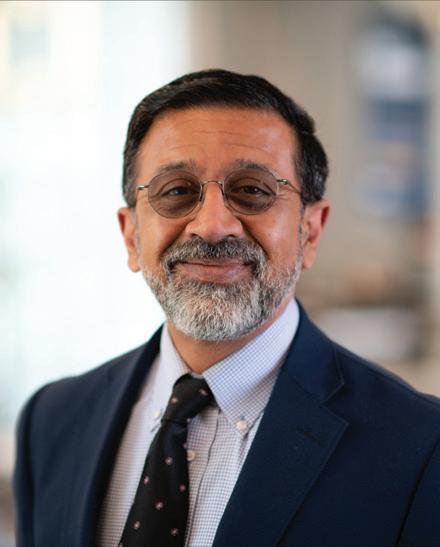
UMass Dartmouth 2
Vice Provost for Research and Academic Affairs
A message from Chancellor Mark A. Fuller

Research is at the core of the University of Massachusetts Dartmouth's educational mission, and makes us unique among educational institutions on the SouthCoast. We are proud to be one of only 93 public universities in the country to achieve the R2 designation for high research activity. The discoveries at UMass Dartmouth directly impact our local knowledge economy and have implications that matter on the global stage.

Our world-class faculty are recognized by peers, national organizations, and funding agencies for their research accomplishments in critically important areas. Faculty are using big data to analyze dietary patterns to improve health. We are using technology to increase ocean sustainability by finding innovative ways to remove microplastics from our waters and studying marine ecosystems near America's first offshore wind farms. Our researchers are also looking outside earth by investigating black hole mergers and the process behind the formation of new stars. By creating new methodologies and pedagogies, we empower engineering skills in students and use our compassion and knowledge to develop modern ways of destigmatizing opioid use disorder.
But what makes it even more remarkable is how research impacts our students. Public research universities like UMass Dartmouth are our society's most powerful engine of opportunity because we bring a college education within everyone's reach and launch students into impressive careers. With half of our students the first in their families to attend college, our graduates are changing their own lives and the lives of their families and communities. Our students are conducting research alongside faculty and gaining learning experiences that will fuel the next generation of discovery.
Best, Mark A. Fuller, PhD Chancellor

3
A letter from the Chancellor
Marine and UnderSea Technology research program (MUST) receives $4.3M grant from the U.S. Navy for
continued focus on marine technology development
The third award in as many years from the Office of Naval Research will further the University's research efforts in the blue economy and offshore wind sectors
On February 8, 2022, UMass Dartmouth and Congressman William Keating announced a $4.3M grant from the Office of Naval Research (ONR) to fund research projects through the Marine and UnderSea Technology research program (MUST) at UMass Dartmouth in collaboration with the Naval Undersea Warfare Center Division Newport (NUWCDIVNPT).
The $4.3M grant will fund nine projects that focus on supporting the blue economy and offshore wind sectors
through remote underwater sensing, battery performance for autonomous vehicles, oxidation mitigation for naval vessels, predictive modeling algorithms, and the use of autonomous vehicles to survey coastal environments. The project teams feature UMass Dartmouth researchers from academic disciplines and researchers from NUWCDIVNPT, industry partners Teledyne Benthos and Black & Veatch, and higher education institutions like UMass Amherst, the University of California, and the University of Virginia.
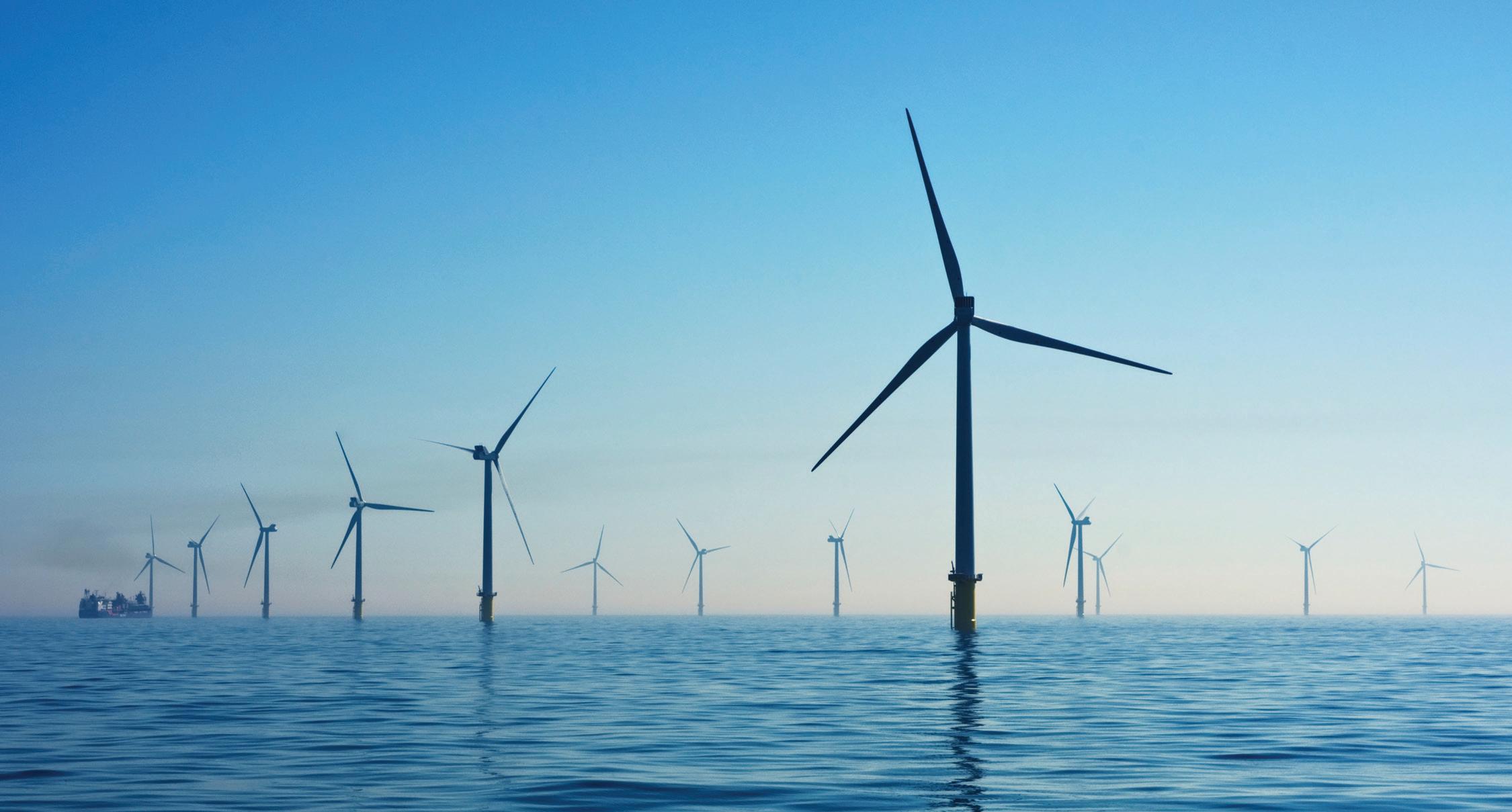
UMass Dartmouth 4
School for Marine Science & Technology
"Our collaborations with the Office of Naval Research and the Naval Undersea Warfare Center in Newport allow us to produce advanced technologies to harness the power of our waters and create an international hub for advanced marine technology," said UMass Dartmouth Chancellor Mark A. Fuller. "We want to educate students from the SouthCoast and the Commonwealth for Blue Economy jobs and produce graduates who will contribute to the industry's success, and with this grant, that is what we will continue to do."
"We're in a period where investments into our workforce are critical," said Congressman Bill Keating. "UMass Dartmouth's Marine and UnderSea Technology program will create a new generation of a highly trained workforce, addressing the needs of the U.S. Navy as well as the emerging blue economy in our district. This is also the third time UMass Dartmouth has been awarded this coveted funding and I congratulate the Chancellor and his team on that. I will continue to work with UMass Dartmouth to push for additional grant funding to expand this important program for years to come."
This most recent award follows a $4.6M grant in February 2020, the largest research award in the university's history, and a $4.2M grant in October 2020 to address the U.S. Navy's short-term concerns of a skilled technical workforce and long-term goals of advanced technology development.
"As the public research university for the South Coast of Massachusetts, UMass Dartmouth is a key driver of the state's blue economy. This $4.3M grant from the Office of Naval Research will fund critical research projects focused on supporting the blue economy and advancing technologies for autonomous vehicles, underwater sensing, and predictive modeling," said Senator Edward Markey. "This continued federal investment—now totaling more than $13 million in awards since 2020—illustrates the MUST program's capacity for high caliber research as well as the impact of the continued partnership between UMass Dartmouth and the U.S. Navy."
"Congratulations to the dedicated researchers and students at UMass Dartmouth for receiving this grant from the Office of Naval Research. This investment in the Marine and UnderSea Technology program will continue to drive research and growth in the blue economy and offshore wind sectors so that Massachusetts can continue to lead in building sustainable communities and economies," said Senator Elizabeth Warren.
"Southeastern Massachusetts can and should be the center of the offshore wind revolution. This grant will spur innovation across the South Coast," said Congressman Jake Auchincloss.
MUST has funded 29 research projects for a total of $13.1M, bringing together regional collaborators such as NUWCDIVNPT to strengthen the Navy's access to cutting-edge research and build a pipeline for a highly trained workforce. These areas of study include autonomous underwater vehicles and increasing their battery life, biofouling, composite materials, machine learning with marine robotics, modeling ocean dynamics, and undersea acoustics for communications and sensing technologies.

"NUWCDIVNPT looks forward to continuing to foster our educational partnership with UMass Dartmouth through the MUST program," said Ron Vien, Technical Director at the Naval Undersea Warfare Center Division Newport (NUWCDIVNPT).
“MUST’s success is the result of a very productive collaboration between the Office of Naval Research, the Naval Undersea Warfare Center Division Newport, UMass Dartmouth faculty and industry in addressing the pressing needs of the U.S. Navy. Training students in technologies of interest to the Navy is a critical focus of this program. We continue to strengthen our investments in these areas,” said UMass Dartmouth Vice Chancellor for Research and Innovation Ramprasad Balasubramanian, who directs the Marine and UnderSea Technology (MUST) research program.
5 2022 Annual Research Report
New Biodegradability Laboratory will explore
plastic biodegradation in the environment
$1.2M in public-private funding to boost new marine technology and sustainability research on the SouthCoast
UMass Dartmouth recently opened its newest state-of-the-art research, learning, and product development laboratory in the School for Marine Science & Technology. The Biodegradability Laboratory supports the development of biodegradable and ocean-safe plastics and other materials by accelerating their path to market with a focus on increasing sustainability. The lab was created through a unique private-public partnership, including a $739,936 Massachusetts Technology Collaborative grant and a $450,000 investment from PrimaLoft, an industry leader in advanced material science that specializes in developing sustainable high-performance insulations and fabrics.
"The opening of the new biodegradability lab at UMass Dartmouth is another incredible example of Massachusetts leading the way towards a more sustainable future," said Lieutenant Governor Karyn Polito. "The research conducted and the products developed within the lab will offer industry and academia opportunities for growth."
"UMass Dartmouth is committed to supporting the rapidly growing Blue Economy by conducting research in important areas such as increasing ocean sustainability, monitoring ecosystems, producing renewable energy, and developing new marine technologies," said Chancellor Mark Fuller. "I am grateful to the Baker-Polito Administration and alum
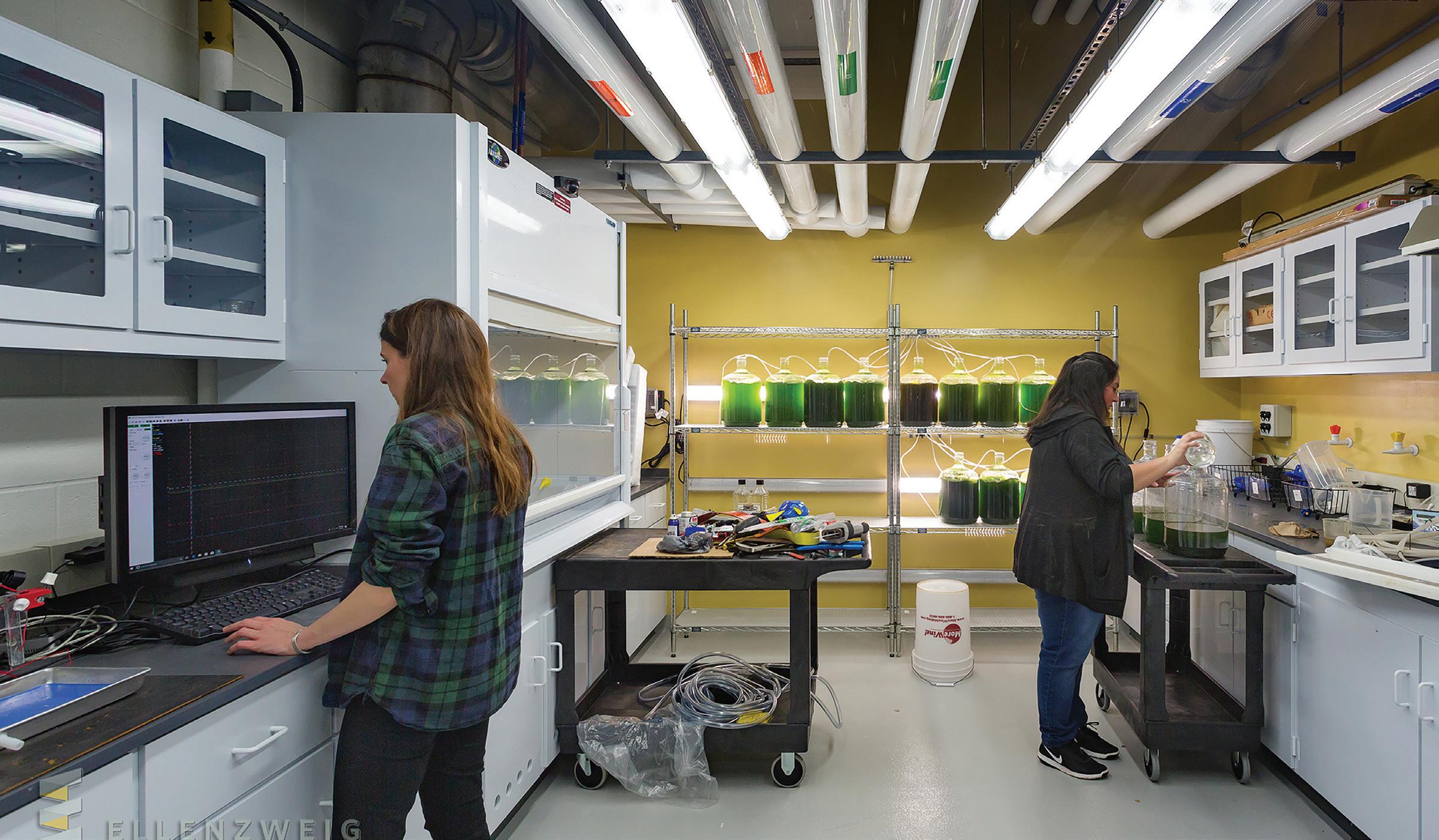
UMass Dartmouth 6
Students conducting research in SMAST's fluids lab
School for Marine Science & Technology
Mike Joyce for allowing our students to learn alongside faculty doing groundbreaking research in the biodegradability lab."
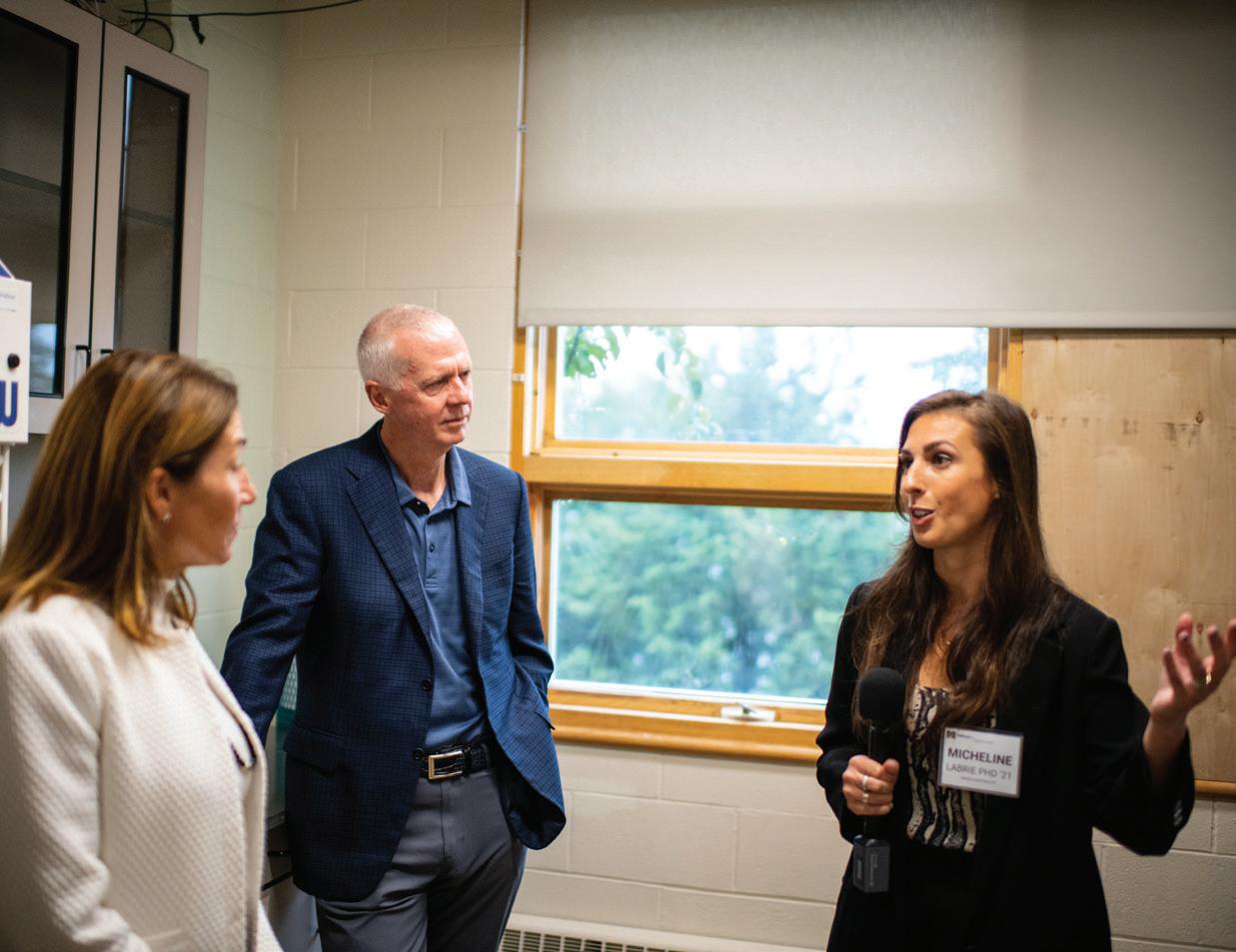
The laboratory is important for businesses interested in the field, providing additional research capacity for evaluating plastic biodegradability. The lab was designed to measure the biodegradation of products in environmental systems where plastic waste persists, including landfills, oceans, wastewater, soil, and compost. The lab components and key features were designed closely and with critical feedback from PrimaLoft textiles engineers, chemical engineers, and environmental scientists.

In addition to PrimaLoft, partners on the project include Radical Plastics of Beverly, Paramount Planet Product, UMass Boston, UMass Lowell, the Marine Biological Laboratory in Woods Hole, Boston-based SeaAhead, and the U.S. Army Soldier Combat Capabilities Development Command Soldier Center.
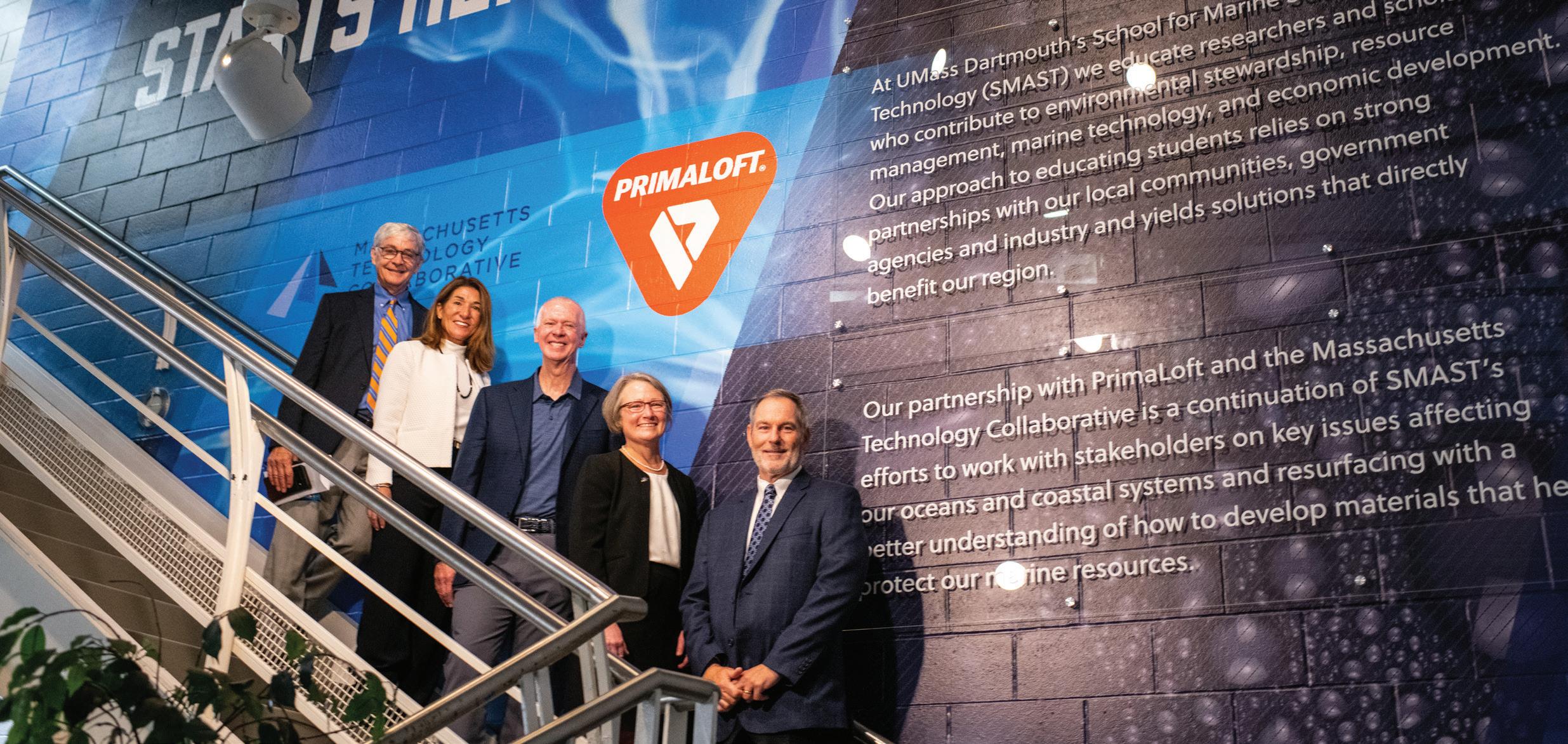
The Biodegradability lab is part of the UMass Dartmouth Marine and Environmental Testing Laboratory (METL). Professor of Estuarine & Ocean Sciences Steven Lohrenz, Director of METL, oversees multiple initiatives to improve the sustainability of the planet’s waters with technology improvement. One initiative is biotoxicology assessments conducted by Bioengineering Associate Professor Tracie Ferreira.
Ferreira studies the Zebrafish life cycle to gauge how pollutants affect the fish. Another research project is mining metagenomic datasets combined with targeted cultivation efforts to explore the presence of bacteria and bacterial metabolisms specialized in plastics degradation by Professor of Biology Pia Moisander.
7 2022 Annual Research Report
UMass Dartmouth is committed to supporting the rapidly growing Blue Economy by conducting research in important areas such as increasing ocean sustainability, monitoring ecosystems, producing renewable energy, and developing new marine technologies."
Chancellor Mark A. Fuller, PhD
Pat Larkin, Deputy Director, Massachusetts Technology Collaborative, Lieutenant Governor Karyn Polito, Chancellor Mark Fuller, Jean VanderGheynst, Dean of Engineering and interim Dean of SMAST, and Mike Joyce '85, PrimaLoft CEO posing in front of a mural outside the new lab
Assistant Research Professor Micheline Labrie explains the intricacies of the new lab to Lt. Governor Polito and Chancellor Mark Fuller
Big data to be used to investigate dietary patterns
Associate Professor Hua Fang (Computer & Information Science) was recently awarded $2,735,127 as part of a prestigious National Institutes of Health (NIH) Research Project Grant (R01).
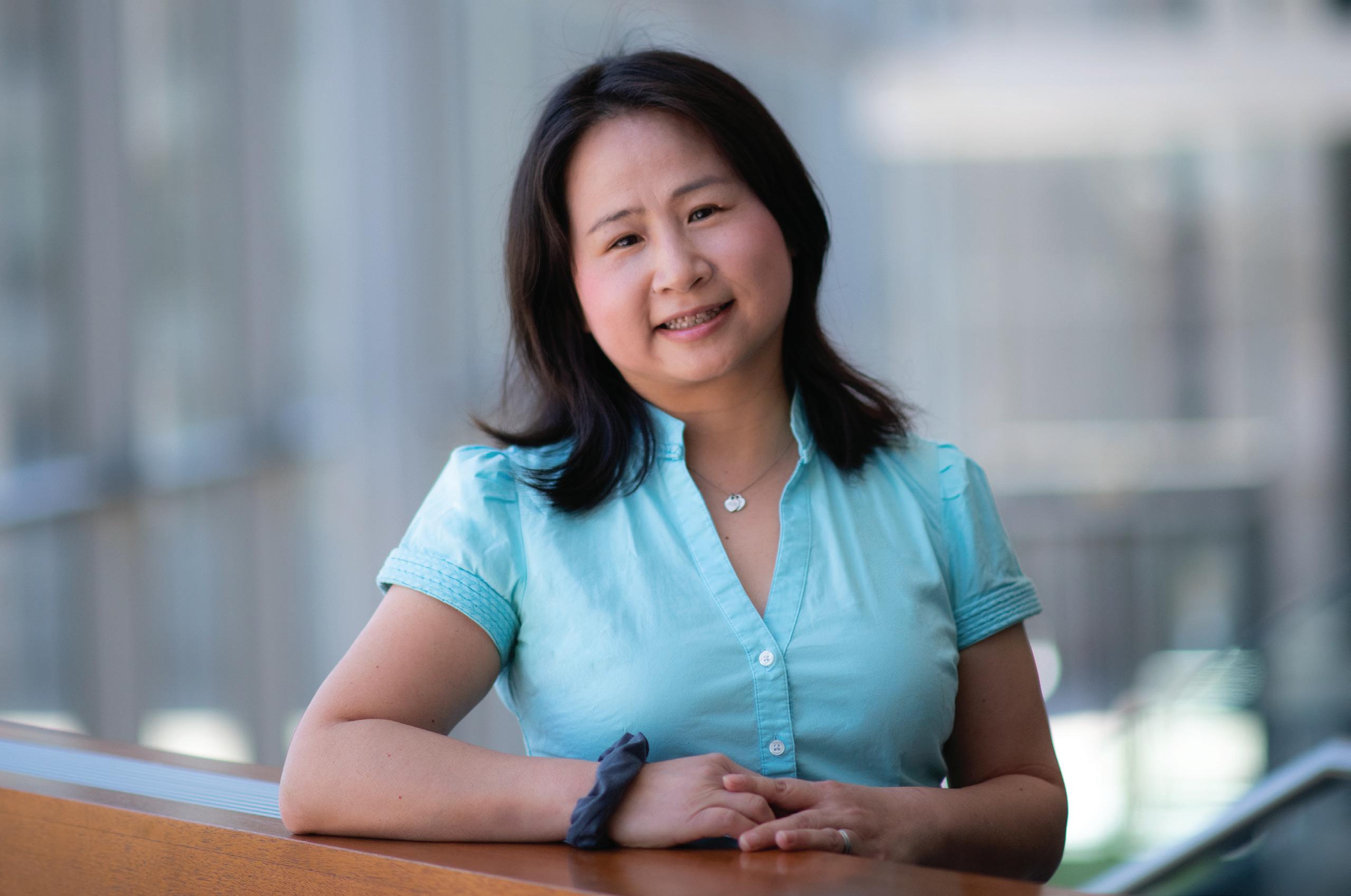
Fang’s award for her research project titled “iPAT: Intelligent Diet Quality Pattern Analysis for harmonized MA-National trials” is the first R01 grant in the history of UMass Dartmouth and Fang’s second such honor. The R01 grant program was created to support health-related research and is the oldest grant mechanism used by NIH.
Fang’s multi-year, multi-site project will combine several large longitudinal dietary datasets from highly comparative randomized controlled trials and observational studies for chronic diseases like diabetes, cardiovascular disease, or obesity generated from her ongoing NIH Vaccine Immunology Program (VIP) project. Leveraging these large data sets, the Intelligent Diet Quality Pattern Analysis (iPAT) research team will detect patterns that capture the long-term diet quality variations among people and examine pattern-associated chronic diseases for participants.
UMass Dartmouth 8
Associate Professor Hua Fang awarded $2.7M in University’s first-ever NIH RO1 grant
College of Engineering
Associate Professor Hua Fang
Most importantly, Fang will lead her research team to develop further intelligent diet quality pattern analysis that will help people visualize distinctions among complex diet patterns, shed light on how patterns evolve in relationship to health outcomes, and clarify how well a diet pattern works in various subgroups.
“It is a great honor to receive this large-scale research grant award from NIH, and it is a recognition of my many-year research in trajectory pattern recognition in longitudinal studies and its potential expansions, as well as the joint efforts, expertise, local and national recourses from our investigator team, related labs, centers, and institutions,” said Fang.
“Our work will help grow more valid evidence for formulating dietary guidelines and may enable better personalized, adaptive dietary strategies, leading towards the next phase of digital trials and nutrition precision health,” said Fang.
Fang is leading a national research team that includes UMass Dartmouth Professor Honggang Wang (Electrical & Computer Engineering) and faculty members from UMass Medical School, including Jeroan Allison, Arlene Ash, Catarina Kiefe, and Milagros Rosal. The team also consists of Lyn Steffen of the University of Minnesota, Lesley Tinker of the Fred Hutchinson Cancer Research Center, James Shikany of the University of Alabama at Birmingham, and Associate Professor Molin Wang of the Harvard T.H. Chan School of Public Health. UMass Dartmouth students from Fang’s Computational Statistics and Data Science Lab will participate as research assistants.
“I’d like to congratulate Dr. Fang on receiving such a prestigious grant award for the second time in her career and for being the first UMass Dartmouth researcher to receive an NIH R01 grant,” said Ramprasad Balasubramanian, PhD, Vice Chancellor for Research and Innovation.
Fang’s research project has twin goals.
First, Fang and her team aim to better understand human food intake behavior and related health risks, which is critical for important societal goals such as preventing or managing many chronic conditions, promoting well-being and safety, and improving lifelong health learning. The second goal is to evolve the use of the iPAT tool and system to uncover more valid evidence for dietary guidelines and more broadly contribute to creating a platform that supports harmonized data management, near-real-time intelligent pattern analyses, and adaptive interventions, leading towards the next phase of digital trials and nutrition precision health.
“Dr. Fang and her team’s research of how diets influence other processes within the body is remarkable. I have no doubt their results will further our understanding of this important issue.”
The NIH R01 award received by Fang is one of the most prestigious and highly competitive awards in America. It is the single largest highly competitive federal research grant award received in UMassD history. This grant, and Fang’s prior NIH grant are the first grants in the UMass System and the U.S. that particularly focus on longitudinal dietary data harmonization from local and national randomized controlled trials and observational studies. Fang’s emphasis on patient-derived visual analytics, pattern validation, statistical machine learning, and artificial intelligence-driven approach in nutrition precision health aligns with NIH and National Science Foundation strategic funding goals.
9 2022 Annual Research Report
It is a great honor to receive this large-scale research grant award from NIH, and it is a recognition of my many-year research in trajectory pattern recognition in longitudinal studies and its potential expansions, as well as the joint efforts, expertise, local and national recourses from our investigator team, related labs, centers, and institutions.”
Hua Fang, Associate Professor Computer & Information Science
Bringing researchers together to solve socio-economic issues through "coastal literacy"
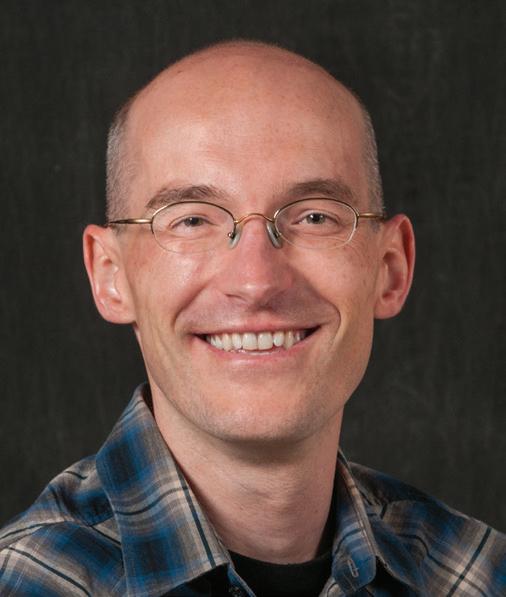
When decisions and policies are made in coastal communities, the connections between coastal resources and local economies are often overlooked. As part of the National Science Foundation's Sustainable Regional Systems Research Networks (SRS RNs) program, Associate Professor Gavin Fay will bring together an interdisciplinary team of researchers and community stakeholders for participatory scenario planning and systems diagramming to address socio-environmental challenges in Massachusetts near-shore communities. The solutions envisioned by Fay include building up "coastal literacy"
in systems-thinking amongst decisionmakers in coastal communities and a collaborative research network to encourage self-sustaining solutions.
"Marine and near-shore ecosystems are important parts of coastal communities' economy and cultural identity," said Fay. "Our research will leverage environmental and social data to consider the benefits of integrative solutions and engage communities and coastal stakeholders who do not normally have a voice in solutions and decisions to derive actionable outcomes."
A diverse group of stakeholders, including individuals from the fishing and offshore renewable energy industries, higher education research institutions, policymakers, and nonprofit organizations, will participate to surface local knowledge and needs, identify

research questions, and outline methodologies to solve current issues and plan for future ones. As a model for the remainder of the planning grant activities, the project team has engaged in scenario planning exercises to build a common understanding within the nascent network. Eventually, the research network will be a replicable and scalable model that can be utilized in other coastal areas across the globe.
This project will also create a professional learning community for K-12 teachers to develop a curriculum associated with coastal literacy related to community-relevant issues in Massachusetts, providing a more inclusive approach to possible solutions for a sustainable future.
UMass Dartmouth 10
Associate Professor Gavin Fay awarded $149,000 planning grant to host collaborative research workshops to examine coastal resiliency holistically
School for Marine Science & Technology
Associate Professor Gavin Fay
Developing leadership skills and engineering identity in graduate students
Associate Professor Tracie Ferreira will use $1.5M NSF grant to prepare graduate students to excel in entrepreneurship, technology, and innovation
Associate Professor and Department Chairperson of Bioengineering Tracie Ferreira is the recipient of a $1,498,020 National Science Foundation (NSF) award for her project titled "Scholarships to Accelerate Engineering Leadership and Identity in Graduate Students."
The project addresses an urgent need to develop initiatives that support the graduation of diverse populations of students in STEM to fulfill workforce demands and prepare graduate students to advance research discoveries into practice. "Our students are invested in their community and have the skills to advance discoveries here on the South Coast," Ferreira says. "The program leverages established accelerated BS/MS programs and research efforts in the College of Engineering that support the maritime economy and will provide scholarships to 90 unique full-time students pursuing accelerated graduate BS/MS degrees in engineering. Students will receive one-year scholarships in the master's year of study."
"It is designed to provide a coordinated program for highachieving, low-income undergraduate student recruitment, and workforce development strategies to prepare and graduate MS-level students to address challenges in biotechnology, marine renewable energy, added value recyclable products, marine artificial intelligence and robotics, cybersecurity, marine restoration, and water resources and protection."
The project aims to increase the STEM degree completion of low-income, high-achieving graduate students with demonstrated financial need. The project also addresses the critical need to graduate leaders skilled in technology, entrepreneurship, and innovation to build and support the economy of the SouthCoast of New England. Additionally, it will provide scholarships to students to allow them to participate in activities that foster engineering identity development.
"Research has shown that students who persist in engineering tend to exhibit high levels of self-efficacy and identify themselves as belonging to an engineering community," says Ferreira. While there have been studies on the role of engineering identity in the transition from K-12 to postsecondary education, Ferreira explains that few studies on either engineering identity or challenges related to self-efficacy have investigated the transition from undergraduate to graduate-level programs.
Furthermore, there have been few studies on the impact of institutional support during these transitional years on the recruitment and persistence of engineering graduate students.
"Overall, the project is expected to fill the gap in knowledge generation on the role of self-efficacy and engineering identity among undergraduate students who continue to pursue engineering through graduate degree attainment," she says.
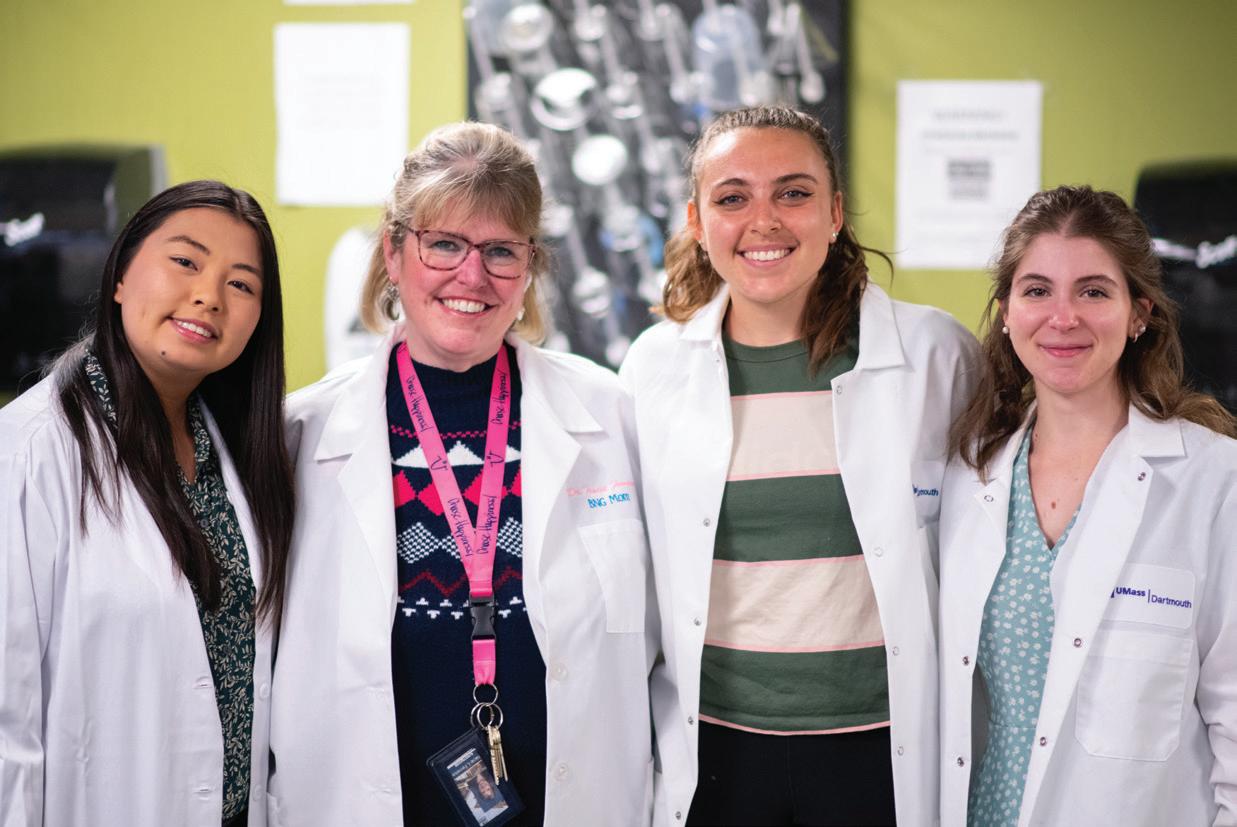
This project is funded by the NSF's Scholarships in Science, Technology, Engineering, and Mathematics program, which seeks to increase the number of low-income, academically talented students with demonstrated financial need who earn degrees in STEM fields. It also aims to improve future STEM workers' education and generate knowledge about the academic success, retention, transfer, graduation, and academic/career pathways of low-income students.
Ferreira's collaborators are Jean VanderGheynst, Dean of the College of Engineering and Interim Dean of the School for Marine Science & Technology; Raymond Laoulache, Associate Dean and Professor of Mechanical Engineering; Shakhnoza Kayumova, Associate Professor of STEM Education & Teacher Development; and Hamed Samandari, Full-Time Lecturer of Mechanical Engineering. Findings will be presented to the STEM education and engineering communities.
11 2022 Annual Research Report
College of Engineering
Associate Professor Tracie Ferreira and graduates students focus on developing leadership skills in STEM disciplines
After two black holes collide, they form one much larger black hole that may or may not be moving. UMass Dartmouth Associate Professor Scott Field, and graduate students, Tousif Islam and Feroz H. Shaik, partook in a study that found the first evidence of a black hole moving at high-speed, clocked at roughly 3 million miles per hour.

Their paper is the first to provide evidence with actual astronomical data from a black hole merger, named GW200129, providing the first confirmation of theories that trace back to Albert Einstein’s 1915 equations of general relativity. Their research found that the final black hole left behind after a binary black hole merger can attain a recoil velocity, or a “kick,” reaching values up to 5,000 km/s.
This phenomenon has important implications for gravitational wave astronomy, black hole formation scenarios, testing general relativity, and galaxy evolution. Before this discovery, it was unknown if such fast-moving blackholes could be produced in the universe.
“Black holes experience a gravitational pull much like here on Earth. If you want to throw your car keys into outer space, you would need to throw them at least 25,000 miles per hour, the escape
Evidence of large recoil velocity from a black hole merger signal
velocity of Earth,” said Field. “Anything less than that, Earth’s gravitational pull will bring your keys back down to the ground. For a black hole to escape the gravitational pull of its host star cluster
This is the first observational evidence of a black hole moving fast enough it could theoretically be ejected from its host star cluster or galaxy, under the right circumstances."
Scott Field Associate Professor
or galaxy, you need even more velocity. This is the first observational evidence of a black hole moving fast enough it could theoretically be ejected from its host star cluster or galaxy, under the right circumstances.”
Given the kick velocity of GW200129, the team estimates that there is a less than 0.48% probability that the remnant black hole would be retained by globular (nuclear star) clusters after the merger.
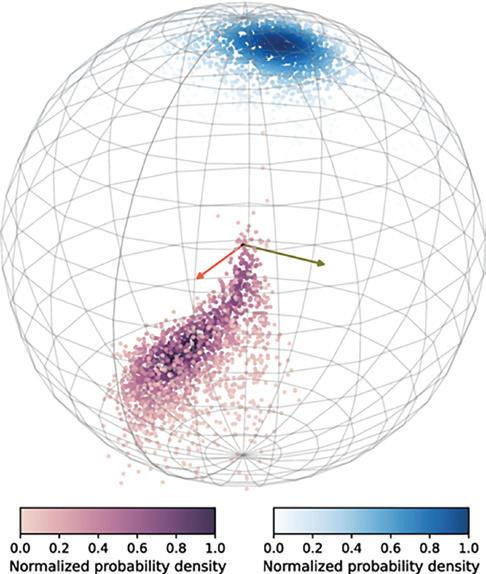
The paper that applied these models to find this high-speed black hole is part of a larger ongoing study being led by two UMassD graduate students to reanalyze all gravitational wave observations seen to date with these new models. In this project, the GW200129 signal had interesting properties, which prompted a targeted study into what was going on with this event.
“We weren’t setting out to look for this. There were about 90 signals we were analyzing and this one led to a brandnew discovery,” said Field. “The project required state-of-the-art models of black hole mergers and gravitational waves, which were produced (with collaborators) as part of my NSF grants.”
The paper for the larger study is in preparation and will report on what Field teases as, “many more astrophysical surprises.”
UMass Dartmouth 12
Associate Professor Scott Field, and graduate students Tousif Islam and Feroz H. Shaik find the first evidence for a large recoil velocity from a black hole merger
College of Arts & Sciences
Shedding light on the origin of exploding stars

Once a second, somewhere in the universe, a star explodes. These cosmic explosions, known as supernovae, are captured nightly in distant galaxies by astronomers surveying space. Yet, there is a mystery underlying these stellar sirens.
"We still don't know the origin of the most important class of supernovae, which are used as cosmic mile markers to understand the size, composition, and ultimate future of our universe," said Robert Fisher, professor of physics at UMass Dartmouth's College of Engineering.
Fisher is the recent recipient of a $550K research grant awarded to him through NASA's highly competitive Astrophysics Theory Program.
"The key concept of our proposal is to bring new breakthroughs on explosions made in the lab by our engineering colleagues into supercomputer simulations of supernovae," said Fisher.
Professor Fisher noted that the interdisciplinary nature of this research into exploding stars necessitates an interdisciplinary research team. The proposed research will be conducted with Fisher's collaborator Alexei Poludnenko, a mechanical engineering professor at the University of Connecticut. The award will also support a postdoctoral research fellow and a PhD student undertaking supercomputer simulations of these supernovae.
 NASA awards Professor Robert Fisher $550,000 research grant through Astrophysics Theory Program
NASA awards Professor Robert Fisher $550,000 research grant through Astrophysics Theory Program
College of Engineering
Professor Robert Fisher
Development and implementation of robust and scalable numerical algorithms
U.S. Air Force awards Chancellor Professor Sigal Gottlieb $600,000 grant for computing cluster
UMass Dartmouth Chancellor Professor Sigal Gottlieb (Mathematics) received a $600,000 grant from the United States Air Force Office of Scientific Research (AFOSR) to develop and implement robust and scalable numerical algorithms.

The grant will fund the acquisition of a new multi-architecture hardware computing cluster to be used as a shared campus research instrument for an inter- and multi-disciplinary group of mathematicians, computational scientists, engineers, and their respective research groups. This will enable the development of robust and scalable numerical algorithms for scientific simulation and data science, empowering eight research projects.
She was named a fellow of the Society of Industrial and Applied Mathematics in 2019 and a fellow of the Association for Women in Mathematics in 2021. She has been on the Research, Scholarship, and Innovation committee since its inception and has been chair since 2019.
"The Air Force is looking for algorithms that do a good job getting results. If you want a computer to solve a problem for you, you must tell it how to do so. Ideally you do so in a way that gives you a solution efficiently. This grant will allow us to develop novel and efficient algorithms, mathematical methods for model complexity reduction, data analytics approaches such as machine learning, and so much more."
Over the last four years, Gottlieb has been the principal investigator for $1.2 million in equipment grants brought to UMass Dartmouth's campus. Since starting at UMassD, she's been awarded nearly $5 million in federal research and equipment grants.
If you want a computer to solve a problem for you, you must tell it how to do so. Ideally you do so in a way that gives you a solution efficiently. This grant will allow us to develop novel and efficient algorithms, mathematical methods for model complexity reduction, data analytics approaches such as machine learning, and so much more."
"This grant is meaningful to me because it gives the Center for Scientific Computing, as well as the entire UMassD campus, a computational resource that we can run codes on, which we otherwise wouldn't have," said Gottlieb. "I also love that it can serve to bring people together to collaborate on these ideas. Building a community through a shared resource means a lot to me."
Sigal Gottlieb Chancellor Professor, Mathematics
Gottlieb has taught and conducted research at UMassD for 22 years, starting as an assistant professor of mathematics in her first faculty position out of Brown University's doctoral program in 1999. Reflecting on two decades on campus, she says she most enjoys the integrated research communities that UMass Dartmouth inspires.
Gottlieb, the founding director of UMass Dartmouth's Center for Scientific Computing and Visualization Research (CSCVR), has been continuously funded by the AFOSR since 2006.
"I love how research communities at UMass Dartmouth include faculty, graduate, and undergraduate researchers," said Gottlieb. "It's a fully integrated community, and I enjoy that so much. We have fantastic faculty and students at every level. Looking back, I think that's my favorite part about working here."
UMass Dartmouth 14
College of Arts & Sciences
Chancellor Professor Sigal Gottlieb
receive $1M to assess fisheries and ecosystem impact of the soon-to-be-built wind farms offshore of
Southern New England
With decades of research experience on fish and fisheries off the coasts of New England, School for Marine Science and Technology (SMAST) faculty members Professor Pingguo He and Commonwealth Professor Kevin Stokesbury are taking on a new challenge: assessing the impact of offshore wind farms on fisheries off the coast of the U.S.
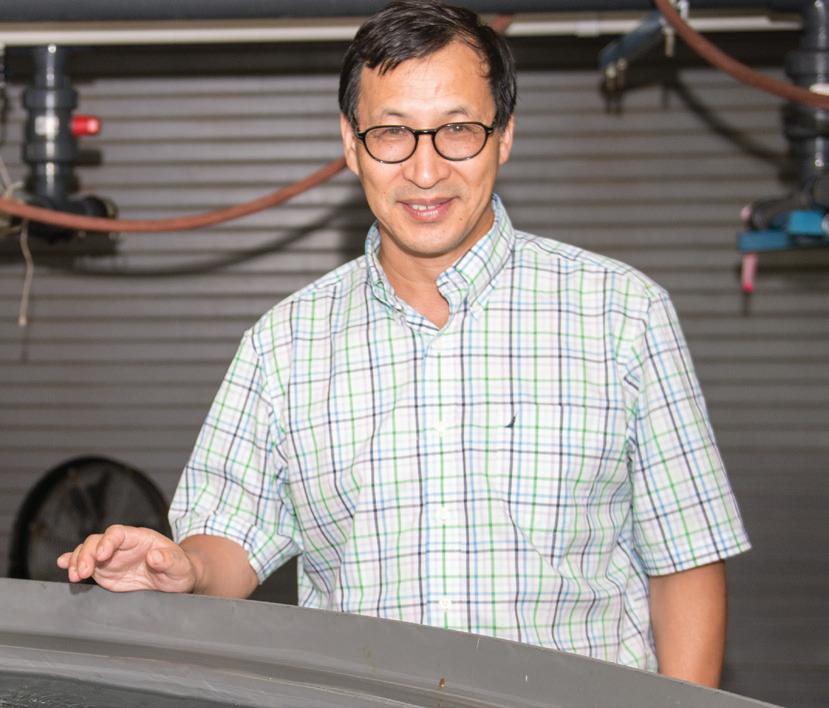
While the story of American offshore wind is long and complex, He and Stokesbury's research on the fish and shellfish in the zone off Martha's Vineyard has laid the groundwork for soon-to-be-built 1 million GWh of renewable energy per year.

To assess the impact of turbines and associated structures on fish communities in their offshore wind farm plot, the renewable energy company Vineyard Wind contracted He and Stokesbury with $1M in funding in 2021-2022 to do studies around the wind farm and the surrounding ecosystem. The company also funded He and Stokesbury in the previous two years for a similar study. The current contract funds three projects studying the offshore wind farm environment.
"The trawl survey with established methodology will not only provide insight into the possible changes in fish abundance and composition before and after construction of the wind farm, but they will also provide data for regionwise data for larger scale analysis on the ecosystem effect across the Atlantic coast of the U.S.," said He.
"The development of offshore wind on our continental shelf is a huge ecological experiment, and we are excited to be scientifically measuring this change," said Stokesbury.
Demersal Trawl Surveys
Seasonal demersal trawl surveys will assess the fish community in the wind farm area and an adjacent control area. Trawl surveys consist of dragging a mesh net across the bottom of the ocean to collect bottom-dwelling species, including some commercially important species in the region. For each tow, aggregate species weight and individual lengths and weights will be collected for all commercial fish species. This survey, which consists of at least 20 tows in the Wind Energy Area and another 20 tows in the Control area, will provide the baseline data on catch rates, population, and community structure for a future environmental assessment using the Before-and-After-Control-Impact framework.
Drop Camera Survey
A drop camera survey will collect baseline data on benthic species and habitat information in the area. This survey aims to provide distribution and abundance estimates of key benthic megafauna, classification of substrate type across the survey domain, and a comparison of benthic communities and substrate types between the wind farm area, control area, and broader regions of the U.S. continental shelf.
It is an extension of the sea scallop survey conducted with New England's fishing industry.
American Lobster, Black Sea Bass, Larval Lobster Abundance Survey and Lobster Tagging Study
Continuing current studies conducted by SMAST, a standardized ventless trap survey, and tagging study will be used to assess the area's American lobster and Jonah crab resources. The black sea bass research will be continued to gather data on relative abundance, feeding habits, and size structure of fish in this region. The team will also determine the relative abundance and distribution of larval lobster.
These studies will help document changes in the marine habitat associated with offshore wind farm development.
15 2022 Annual Research Report Fisheries Oceanography professors
Professor Pingguo He
School for Marine Science & Technology
Professor Kevin Stokesbury and students explore ground species in SMAST labs.
Addressing stigma towards opioid use disorder
The $595,485 grant from the Foundation for Opioid Response Efforts (FORE) aims to develop an evidencebased toolkit of high-fidelity simulations for undergraduate, masters, and doctoral nursing students
excited for the opportunity to make a difference in addressing this very important issue."
The Foundation for Opioid Response Efforts (FORE), a private 501(c)(3) national grantmaking foundation focused on ending the nation's opioid crisis, announced 11 new grants totaling $4.8 million to support innovative solutions to some of the opioid crisis's most challenging problems. These grants were selected from nearly 500 applications. Other grant recipients include researchers at Montefiore Medical Center in Bronx, NY; Brown University in Providence, RI; Temple University in Philadelphia, PA; Tufts University School of Medicine in Boston, MA; and the University of North Carolina in Chapel Hill, NC.
College of Nursing & Health Sciences Professor Mary McCurry, Associate Professor Monika Schuler, Associate Professor Jennifer Viveiros, Assistant Professor Shannon Avery-Desmarais, and Assistant Professor Mirinda Tyo were part of a research team that was recently awarded a two-year $595,485 grant from the Foundation for Opioid Response Efforts (FORE). Their project, "Novel Organizational Simulation Training to Improve Graduate's Mastery & Attitudes (NO STIGMA)," aims to develop an evidence-based toolkit of high-fidelity simulations for undergraduate, masters, and doctoral nursing students to address stigma towards populations with opioid use disorder.
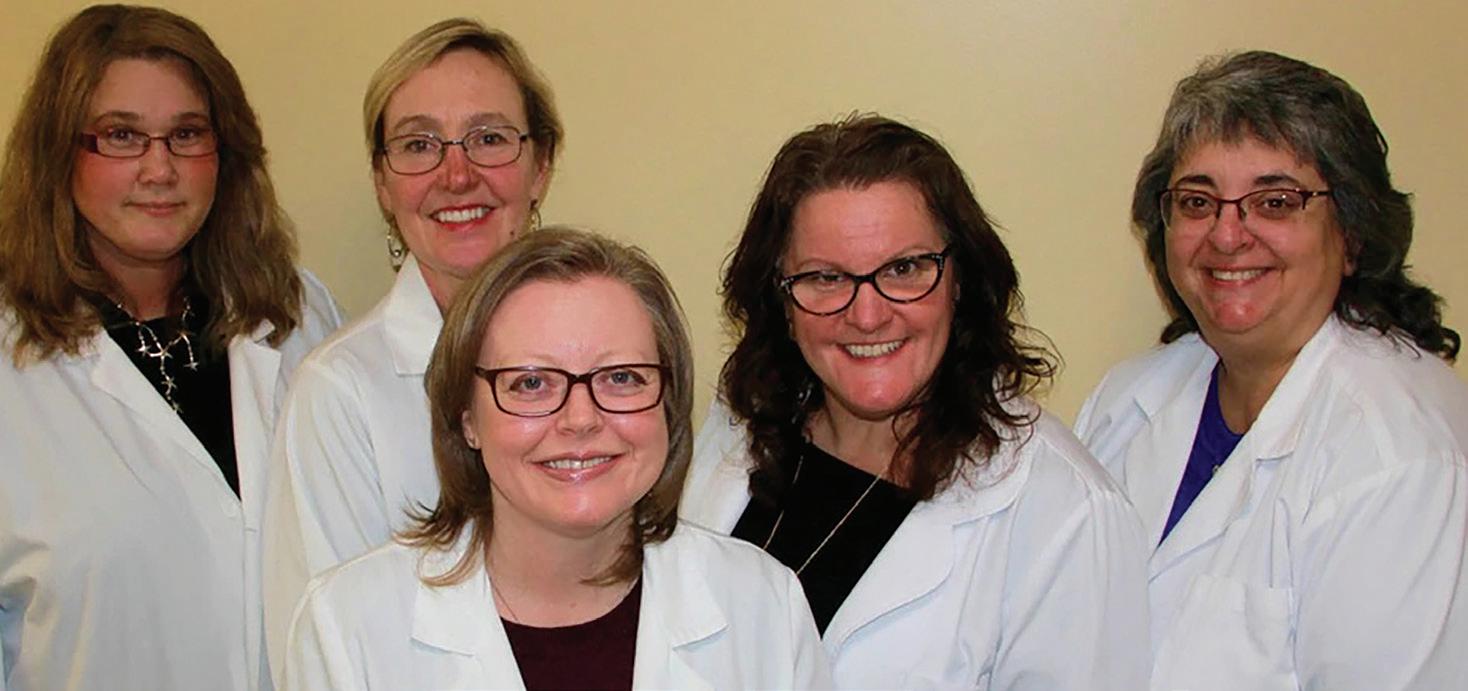
"While the COVID-19 pandemic has been at the forefront of our nation's public health priorities for the last two years, it is critical to remember that the opioid crisis and its stigma continue," said Kimberly Christopher, Dean of the College of Nursing & Health Sciences. "We are extremely grateful to FORE for this generous and timely grant that will assist in preparing future nurses to treat patients with opioid use disorder with the highest levels of care and compassion. This grant reflects the high quality of the proposal submitted by our faculty who are experienced practitioners, educators, and researchers on this topic."
McMurry added, "The stigma of opioid use disorder has been associated with significant health disparities. Our team is very
"We are launching our Innovation Program to generate and support new approaches to some of the long-standing barriers to making real progress in addressing the opioid crisis – how to better tackle stigma, generate more timely and actionable data, and help for people transitioning from treatment to long-term recovery," says FORE President Karen A. Scott. "These projects have great potential to give us exciting new tools and lessons that will help communities around the country respond to the crisis more effectively, inform future policy decisions, and ultimately save lives."
The UMass Dartmouth team's project aligns with FORE's goal of producing professional education and training opportunities to address stigma. These educational interventions will enhance knowledge and empathy in the next generation of nurses and nurse practitioners to remove barriers to treatment and improve outcomes for patients with opioid use disorder.
FORE's mission is to support partners in advancing patientcentered, innovative, evidence-based solutions impacting people experiencing opioid use disorder, their families, and their communities. Through convening, grantmaking, and developing informational resources, FORE seeks to bring about long-term change. To date, FORE has awarded 55 grants totaling $17.9 million.
UMass Dartmouth 16
College of Nursing & Health Sciences faculty serving on the No Stigma research team are, from left, Mirinda Tyo, Monika Schuler, Shannon Avery-Desmarais, Jennifer Viveiros, and Mary McCurry.
College of Nursing & Health Sciences
Mechanical Engineering Professor earns two prestigious awards
Banafsheh Seyed-Aghazadeh receives over $1M in grants from the NSF and the Office of Naval Research to support research efforts in fluidstructure interactions
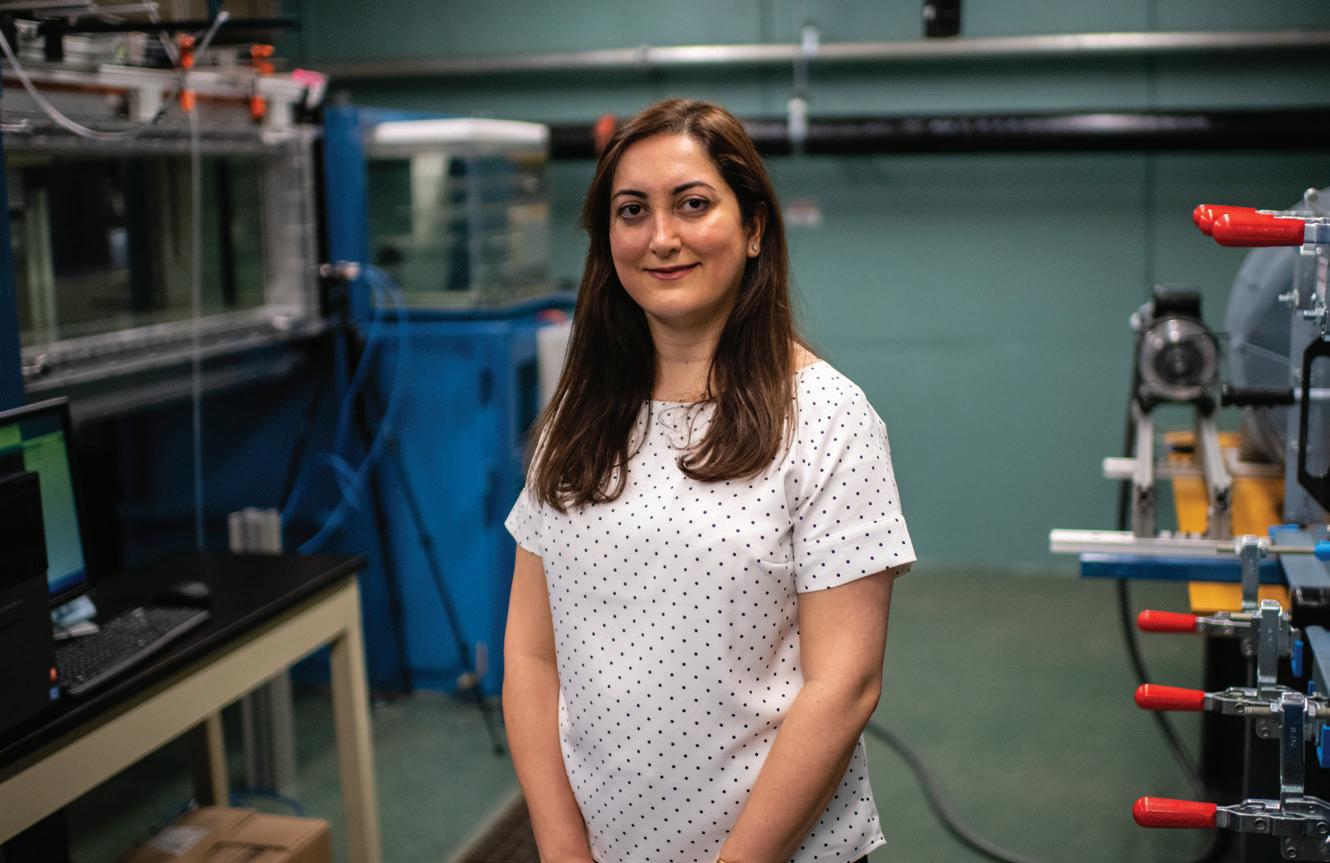
Banafsheh Seyed-Aghazadeh, assistant professor of Mechanical Engineering at UMass Dartmouth's College of Engineering, was awarded an intended $506,972 CAREER award granted by the National Science Foundation (NSF) and $508,936.00 from the Office of Naval Research Young Investigator Program (ONR YIP) less than four months apart.
The NSF grant will directly support her project, "FluidStructure-Surface Interactions of Flexible Bodies at the AirWater Interface." The ONR grant will provide Seyed-Aghazadeh with laboratory support for research in aerodynamics and Fluid-Structure Interactions in flexible structures.
"I am honored that my group's research activities have received such recognitions via such prestigious awards. These awards will provide significant support to my group's innovative basic research into fundamentals of Fluid-Structure Interactions problems with anticipated impact on the scientific research and naval aviation community," said Seyed-Aghazadeh.
The National Science Foundation calls the CAREER program "The most prestigious award in support of early-career faculty who have the potential to serve as academic role models in research and education."
"Within this project, our goal is to unveil a new physical phenomenon of fluid-structure-surface interaction that would transform our understanding of the complex physics behind the coupling between the dynamics of flexible structures operating near free surfaces of the fluid flow," said SeyedAghazadeh. "The results from this study would open further avenues for research and applications in a wide range including, but not limited to soft robotics, bio-inspired propulsion, ocean sensing, and energy harvesting."
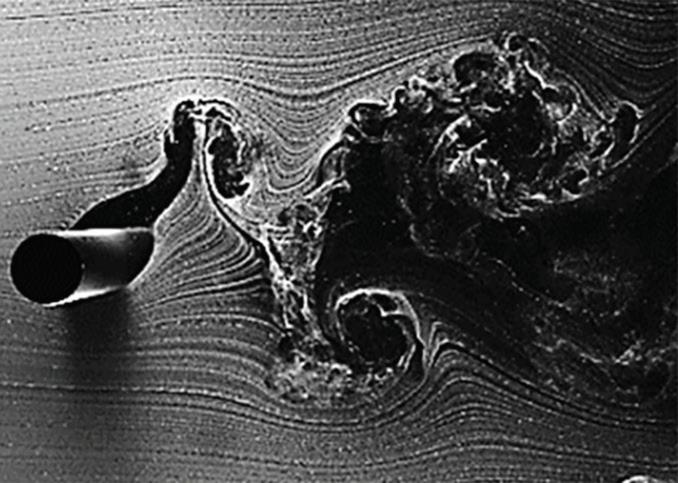
The ONR YIP has only been awarded to 32 early-career faculty members nationwide this year. According to their website, the objectives of this program are to attract outstanding faculty members of Institutions of Higher Education to the Department of the Navy's Science and Technology research program, to support their research, and to encourage their teaching and research careers.
"The focus of this project is to create Fluid-Structure Interactions experimental-numerical campaigns to characterize the flowinduced instability and associated 3D flow physics of such flexible wings. The findings from this project will leverage our understanding of the aerodynamic performance of flexible wings that can be implemented towards the development of innovative and effective flow control strategies, which is detrimental to the aircraft performance and its structural reliability," said Seyed-Aghazadeh.
"I am excited to see my lab's integrated research and educational activities once again manifest another example of UMass Dartmouth's growing footprint in research and student mentorship activities, empowering the blue economy in the SouthCoast of Massachusetts."
17 2022 Annual Research Report
Flow field behind a bluff body representing an offshore structure, visualized through hydrogen bubble imaging at the Fluid-Structure Interactions laboratory at UMass Dartmouth.
College of Engineering
Assistant Professor Banafsheh Seyed-Aghazadeh
Charlton College of Business partners with New Bedford Economic Development Council for “NB100!”
The New Bedford Economic Development Council’s (NBEDC) “NB100!” program aims to promote entrepreneurship, grow local wealth, and strengthen community bonds through technical assistance and $10,000 kick-starter grants offered by its partners. John Williams, Dean of the Charlton College of Business (CCB), has secured a $50,000 grant for the Charlton College of Business to work with the NBEDC as a spoke partner in the NB100! program.
Through this program local entrepreneurs will have an opportunity to apply for technical assistance offered by CCB faculty through a cohort style of instruction, facilitating assistance through a series of workshops in a small group setting.
“This award is recognition of the heightened level of expertise that our faculty possess in the area of entrepreneurship,” said Williams. “CCB faculty will bring their extensive academic and practical experience to help identify and address the unique business needs of each client through a balance of instruction and discussion.”
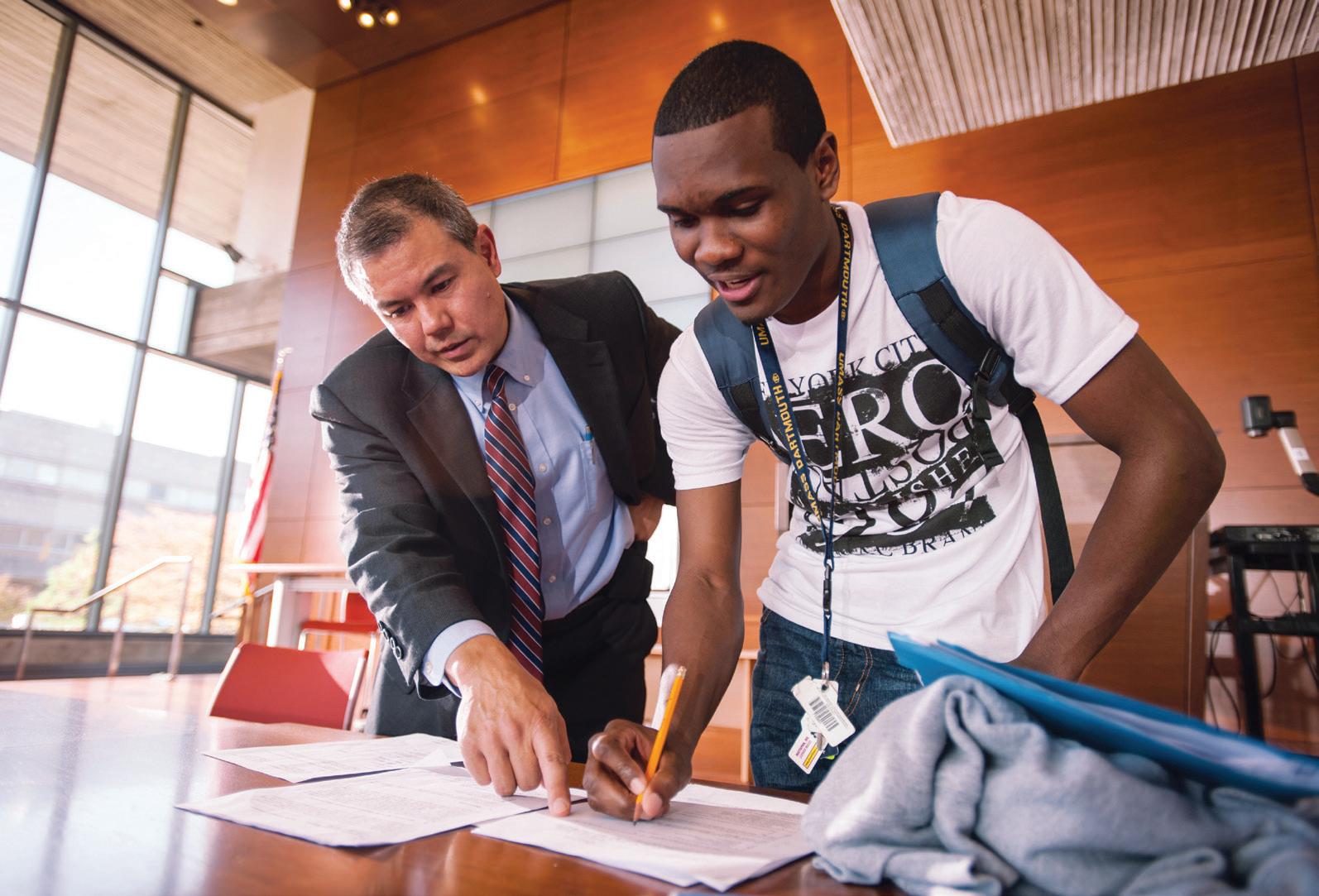
Kick-starter grants are designed to provide working capital for businesses impacted by COVID-19, so they can prevent, prepare, or respond to challenges presented. Eligible uses include business lease or mortgage payments, utility payments, monthly insurance costs, payroll, and more.
To consult best practices and uses of funds, CCB will interview grant recipients to identify specific needs and concerns before hosting a series of workshops to analyze financial documents, forecast growth, identify breakeven points, cover legal issues, and create marketing campaigns.
“We are extremely excited to be working with local entrepreneurs. A major component of our mission in the college is to provide innovation to organizations through our engagement endeavors,” said Williams. “Efforts like this can result in a very positive impact on the vitality of the community.”
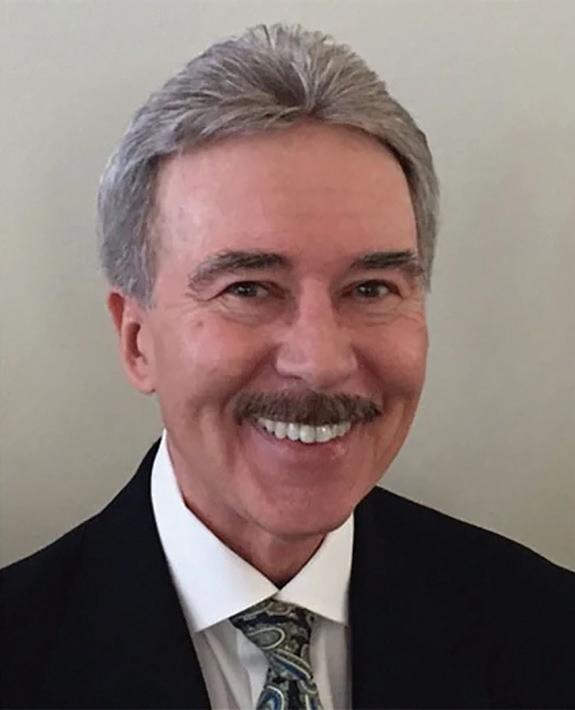 of
John Williams, Dean of the Charlton College of Business, lands $50,000 for entrepreneurship support program
Dean John Williams
of
John Williams, Dean of the Charlton College of Business, lands $50,000 for entrepreneurship support program
Dean John Williams
This award is recognition of the heightened level of expertise that our faculty possess in the area of entrepreneurship...CCB faculty will bring their extensive academic and practical experience to help identify and address the unique business needs of each client through a balance of instruction and discussion.”
Charlton College of Business
John Williams Dean
Charlton College of Business
Examining a new era of law, technology, and privacy

UMass Law Associate Dean for Academic Affairs Shaun Spencer has studied the intersection of law, technology, and privacy for two decades. His research examines how law fails to keep pace with technological and social change in domains such as consumer protection, intelligence collection, and criminal investigations. He has studied such technologies as location tracking by law enforcement, the bulk collection of telephone metadata by the National Security Agency, the use online behavioral advertising to influence consumers and voters, and content moderation by social media platforms.
Spencer’s recent articles study how to regulate companies’ attempts to use our data to manipulate the choices we make and the speech that we share. In The Problem of Online Manipulation, he details the history of manipulative marketing practices and the increasingly personalized approaches made possible as manipulation moves online. He also identifies the definitional and constitutional challenges presented by attempts to regulate online manipulation and suggests that the core objection to online manipulation is not its manipulative nature but its intrusive online implementation. For those reasons, he opposes direct regulation and argues instead that the threat of data-driven manipulation supports the current push for comprehensive data protection legislation.

In Two First Amendment Futures: Consumer Privacy Law and the Deregulatory First Amendment, Spencer explains how proposed consumer privacy laws implicate a long-running contest over the scope and meaning of the First Amendment’s speech clause. The debate about whether to pass a comprehensive federal privacy law has largely ignored the inevitable First Amendment challenges. As Spencer explains, these challenges will occur in the context of the “deregulatory First Amendment,” the Supreme Court’s decades-long expansion of the First Amendment’s constraint on economic regulation.
Finally, in The First Amendment and the Regulation of Speech Intermediaries, Spencer addresses the debate on overregulating social media platforms. Applying longsettled First Amendment doctrine to platform regulation presents significant analytical challenges. Spencer aims to mitigate at least some of those challenges by isolating the under-examined role of the speech intermediary in First Amendment jurisprudence. Speech intermediaries introduce new speech interests that may conflict with the traditional speaker and listener interests that First Amendment doctrine evolved to protect. Spencer proposes a taxonomy of speech intermediary functions—conduit, curator, commentator, and collaborator—to help courts understand how the speaker, listener, and intermediary interests at issue should affect whether a particular regulation survives First Amendment scrutiny.
Spencer’s research informs emerging debates over the appropriate regulation of privacy, technology, and information policy. His work on online manipulation and the deregulatory First Amendment bears directly on the Congressional debate over proposed consumer privacy regulation. Further, his work on the regulation of speech intermediaries examines recent challenges to Florida and Texas laws attempting to limit social media platforms’ content moderation practices. Two federal appeals courts have taken conflicting positions on the issue that Spencer discusses, which could soon arrive at the Supreme Court.
UMass Law
Associate Dean Shaun Spencer
Raising awareness and appreciation for
brutalist architecture
UMassBRUT project wins Docomomo US Modernism in America Award for celebration of unique architecture on the UMass Dartmouth and UMass Amherst campuses
UMassBrut, a collaborative campaign led by a group of faculty, students, staff, and administrators at UMass Dartmouth and UMass Amherst, received a Docomomo US Modernism in America Inventory/Survey Award of Excellence for its efforts to raise awareness and appreciation of the significant brutalist structures that shape much of both campuses.
The bold, imposing architecture at UMass Dartmouth is a result of famed 1950’s and 60’s architect Paul Rudolph’s vision for an “urban” public university, coupled with progressive achievements in the fields of design and engineering.


“We are so fortunate that much of Rudolph’s brutalist campus remains intact,” said Anna Dempsey, Professor and Chairperson of the Art Education, Art History, & Media Studies department. “At UMass Dartmouth, he created a unified design that conveys a sense of progressive optimism and an open-ended one that allows for new aesthetic expressions. This work, which is rather unique for a public university, has been widely celebrated by international architects, planners, and designers—as well as members of the local communities in the SouthCoast.”
professionals, artists, and passionate citizens with an interest in the preservation of mid to late twentieth-century architecture.
"UMassBrut's mission is to raise awareness of the relevance and international significance of our brutalist architectural heritage. To achieve this goal, we are developing a series of multi-year initiatives combining cross-interdisciplinary events, social media, and public outreach campaigns," said Allison Cywin, Librarian and Director of UMass Dartmouth’s Visual and Media Literacy hub.
"These activities will promote the importance of these architectural icons and highlight the critical need to preserve them now and for future generations. UMassBrut has raised more than $40,000 in grants, sponsorships, and departments' support, giving us the seed money to pursue future activities."
An ultra-collaborative project founded by Anna Dempsey (scholarly research) and Allison Cywin (administrative and additional support),
According to Docomomo, “The UMassBrut campaign stood out for its all-hands-on-deck approach to rallying large educational institutions around better stewardship of their modern resources. Following a two-day symposium, they have made great strides in educating and warming their community towards brutalism.”
The sold-out symposium provided a unique platform that brought together a team of distinguished scholars, industry
UMassBrut was also made possible thanks to UMassD faculty and staff Rose Mary Botti-Salitsky, Christina Bowen, Michelle Bowers, Lara Henderson, A. Lawrence Jenkens, Benjamin Jones, Viera Levitt, Stephanie McGoldrick, and Ramprasad Balasubramanian, students from the College of Visual & Performing Arts, and their respective counterparts at UMass Amherst. The group is looking to expand to include events at UMass Boston and launch a virtual campus tour next year.
UMass Dartmouth 20 College of Visual & Performing Arts
Ryan Beemer collaborates on the first study of underground deployable geosystems

Funded by the National Science Foundation, Collaborative Research: Analyzing Deployable Torque-Activated Structural Mechanisms for Enhanced Tension Capacity of Geosystems, is a collaboration between Ryan Beemer, Assistant Professor of Civil and Environmental Engineering at UMass Dartmouth, and Ann Sychterz and Joe Tom of the University of Illinois.
The project focuses on the behavior of deployable geosystems. These systems change size or shape after being installed in the soils, like an umbrella opening underground. To this point, deployable systems have only been used in aerospace and above-ground applications such as the James Webb telescope or scissor lifts, for example. This project will be the first to explore their use underground to support offshore structures. Beemer’s group at UMass Dartmouth will test and analyze scale models of the deployable geosystem in an effective stress testing chamber.
Researchers will examine deployable foundations and anchors that increase their size underground once they are installed. These systems can be used specifically for foundations and anchors for offshore wave and wind energy converters, landbased wind turbines, and tall buildings. Deployable systems can reduce the cost of foundations and anchors because they are easier to transport when they are folded. That is, more foundations can fit on a truck or a ship, so less roundtrips are needed to and from the construction site.
Offshore construction vessels can cost over $100,000 a day to operate. The ability to transport double or triple the number of folded geosystems that deploy in the field can result in significant cost savings for offshore construction. Onshore, these systems would still result in transportation cost savings and are also easier to install in dense urban environments.
“We are excited for this interdisciplinary research on deployable geosystems,” Beemer said. “The concept of a small foundation that grows and expands underground is so simple and elegant but has never been researched. We hope this could change how we think about designing foundations and underground construction to create more efficient and reliable infrastructure.”
21 2022 Annual Research Report
The concept of a small foundation that grows and expands underground is so simple and elegant but has never been researched. We hope this could change how we think about designing foundations and underground construction to create more efficient and reliable infrastructure.”
Ryan Beemer
Assistant Professor
Assistant Professor Ryan Beemer
College of Engineering
ORA REPORT
In the pages of the UMass Dartmouth Research Annual Report for fiscal year 2022, you’ll find statistics, data, and stories about the amazing research conducted here that has real-world impact. Not detailed is the work done by the Office of Research and Innovation to facilitate faculty research. The entire team in the Office of Research and Innovation continues to serve the growing portfolio of sponsored research at UMass Dartmouth.

Research administration is a critical component of any research institution. It is responsible for the efficient and effective management of research funds, compliance with sponsor and institutional policies, and other research-related resources and processes. The team works seamlessly to submit proposals, set up awards, invoice, certify effort and report in a timely, efficient manner.
Without the support of the staff of the Offices of Research Administration, Research Support, Research Development, Environmental Health and Safety, Institutional Ethics and Compliance, and Technology Commercialization and Ventures, none of the successes in this report would have been possible. I am grateful for their efforts, and I look forward to our continued collaboration with the research faculty here at UMassD.
Megan Hennessey-Greene Assistant Vice Chancellor of Research and Innovation


UMass Dartmouth 22
Office of Research Administration
FY2018 - FY2022 Proposals Submitted and Percentage Awarded

23 2022 Annual Research Report
Non Federa l Depart ment of Defense Other Fe deral Sources National Science Foundation Depart ment of Health and Human Serv ices Depart ment of Commerce (N OA A) National Aero and Space Administration % Awarded Gr and Total FY2018 FY2019 FY2020 FY2021 FY2022 60% 250 50% 200 40% 150 30% 100 20% 50 10% 0 0% 214 222 190 171 198 Metrics 45% 38% 39% 31% 51% Submitted
Funding Requested v. Awarded FY2018 - FY2022 (000’s)
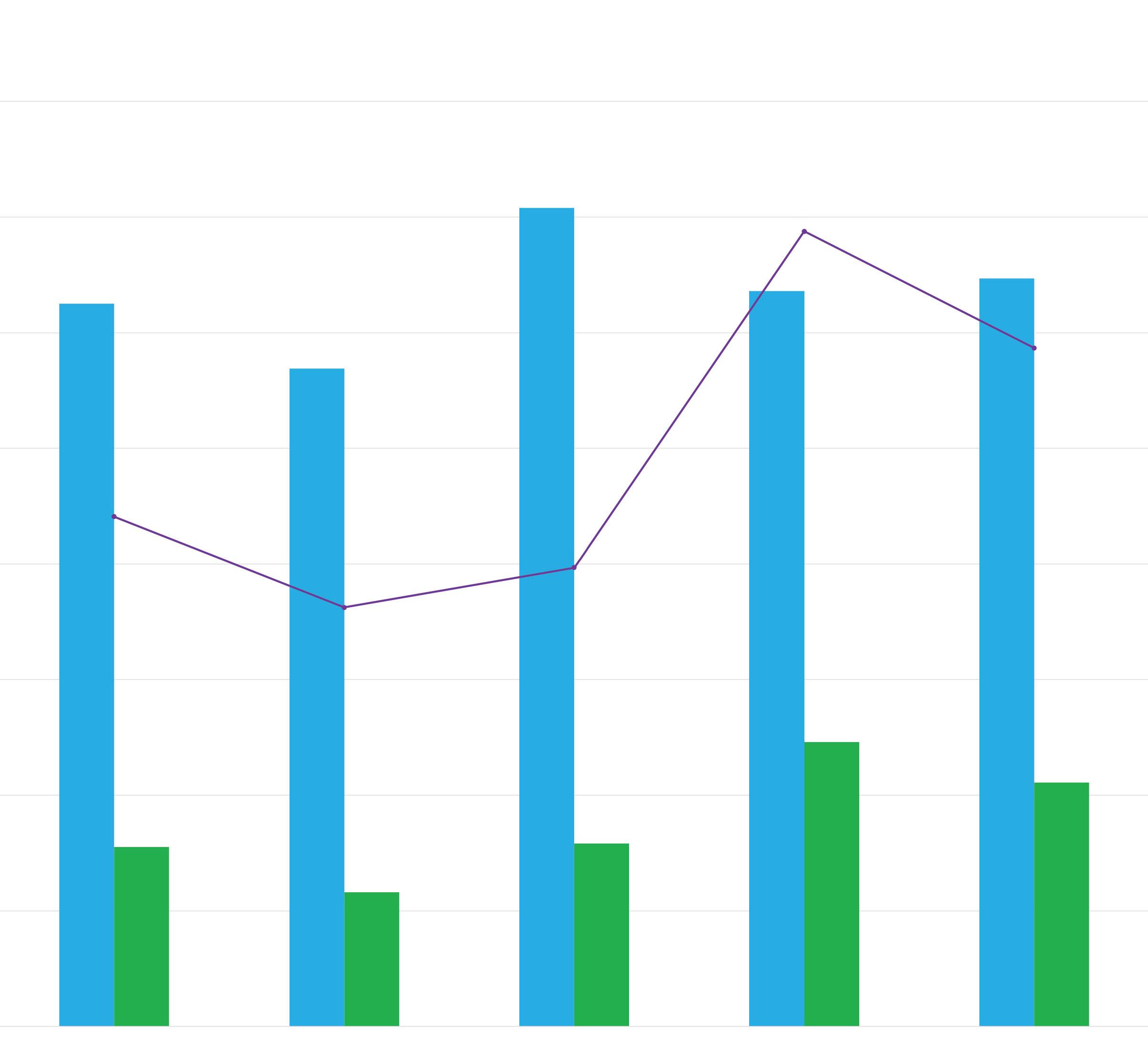
UMass Dartmouth 24 Metrics FY2018 FY2019 FY2020 FY2021 FY2022 Requested $ Awarded $ % Awarded 45% $80.0 $40.0 $60.0 $20.0 $70.0 $30.0 $50.0 $10.0 $–40% 35% 30% 25% 20% 15% 10% 5% 0%
$62.5M $56.9M $70.8M $63.6M $64.7M 25% 20% 22% 33% 39%
New Awards FY2018 - FY2022 (000’s)
Active Awards 5-Year Trend FY2018 - FY2022 (000’s)
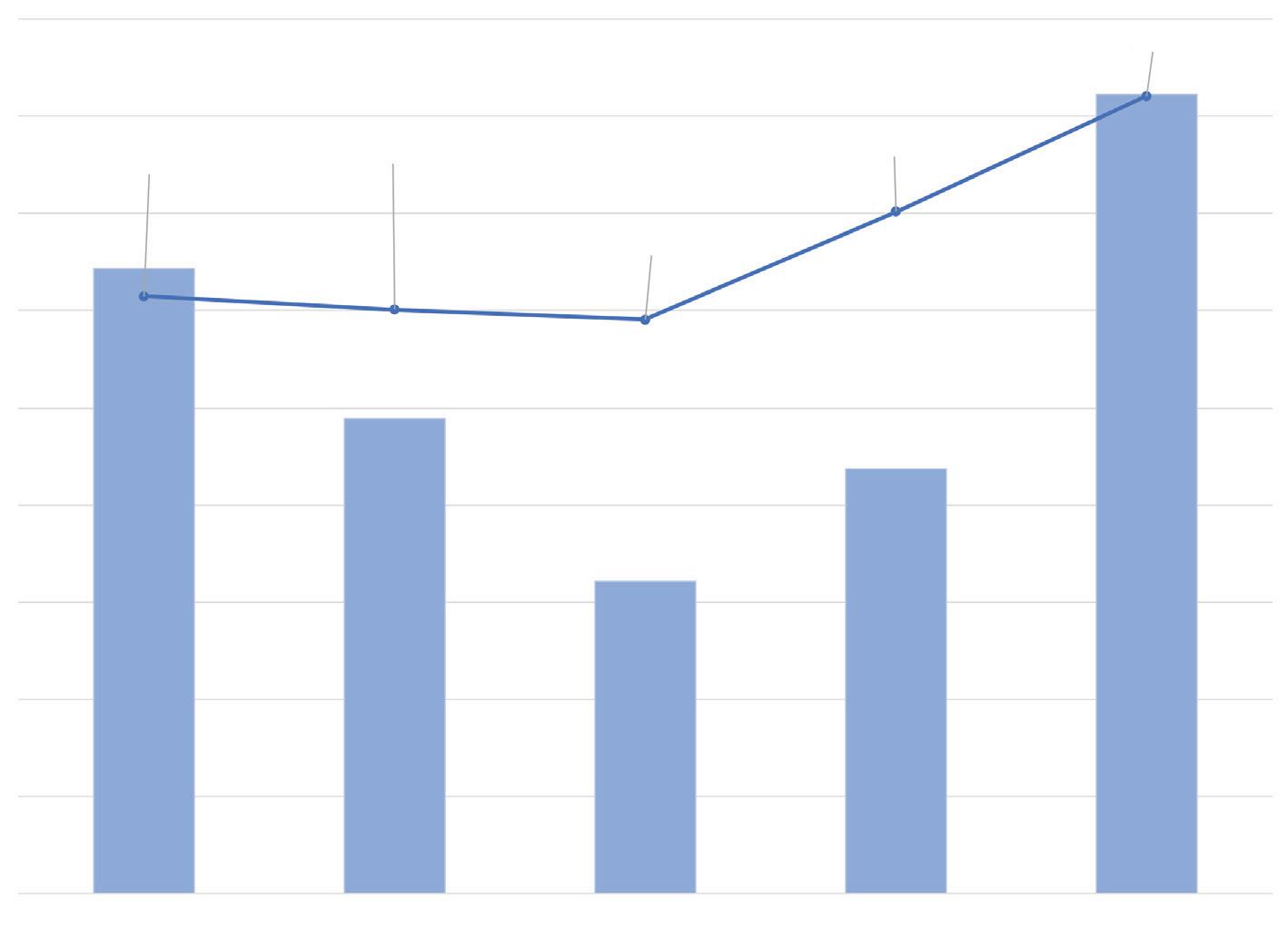
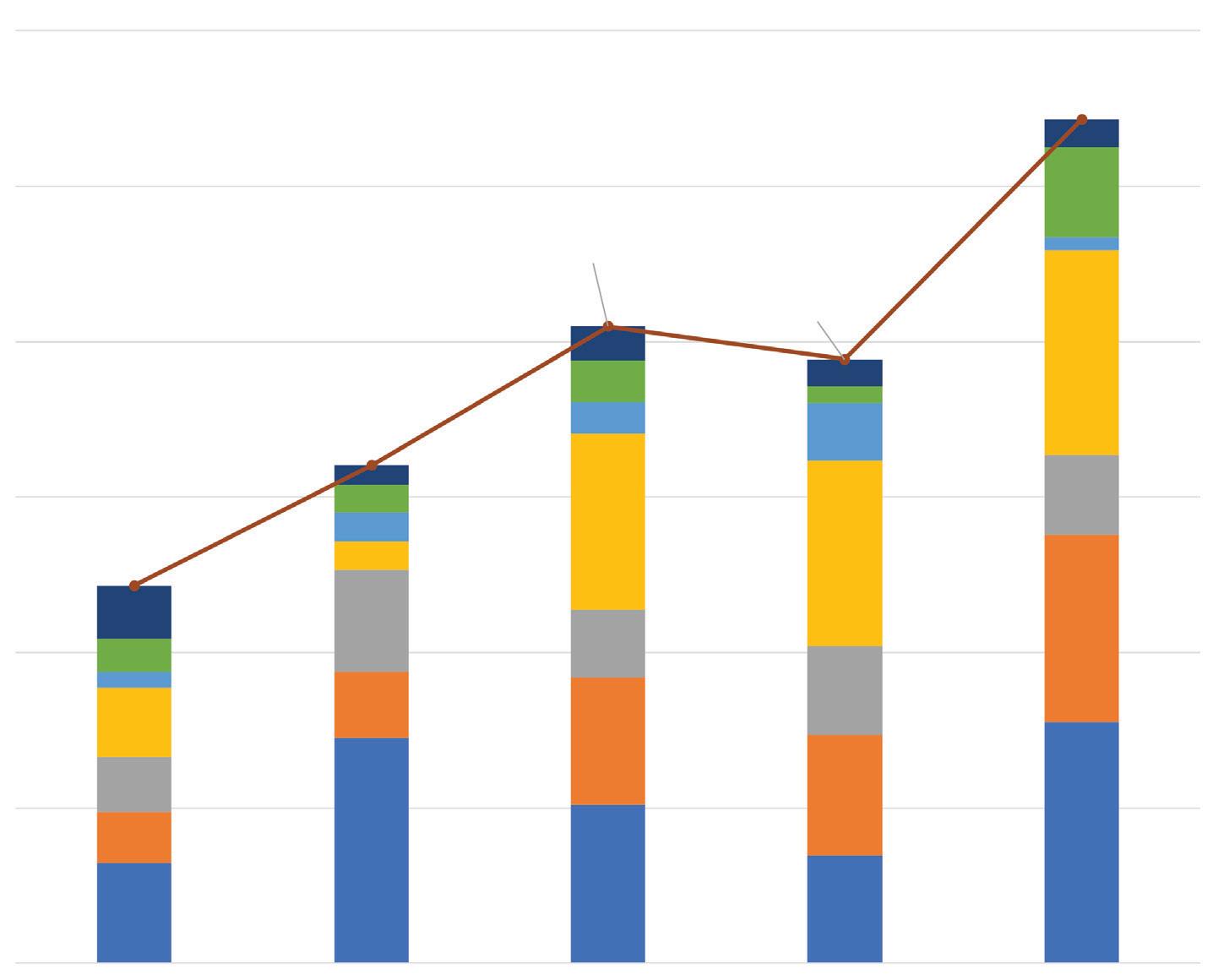
25 2022 Annual Research Report
$–Non Federa l Depart ment of Education National Science Foundation Depart ment of Health and Human Services Depart ment of Commerce (N OA A) Other Federal Sources Depart ment of Defense Grand Total FY2018 FY2019 FY2020 FY2021 FY2022 $25,000 $30,000 $20,000 $15,000 $10,000 $5,000 FY2018 FY2019 FY2020 FY2021 FY2022 280 255 294 264 268 # Awards # Dollars (000’s) 300 290 260 280 270 250 240 230 80.0 90.0 70.0 60.0 50.0 40.0 30.0 20.0 10.0
$16.0M $20.5M $27.1M $19.4M $12.1M $54.7M $61.5M $60.1M $59.1M $82.1M Metrics
Sponsored Research Expenditures FY2018 - FY2022 (000’s)
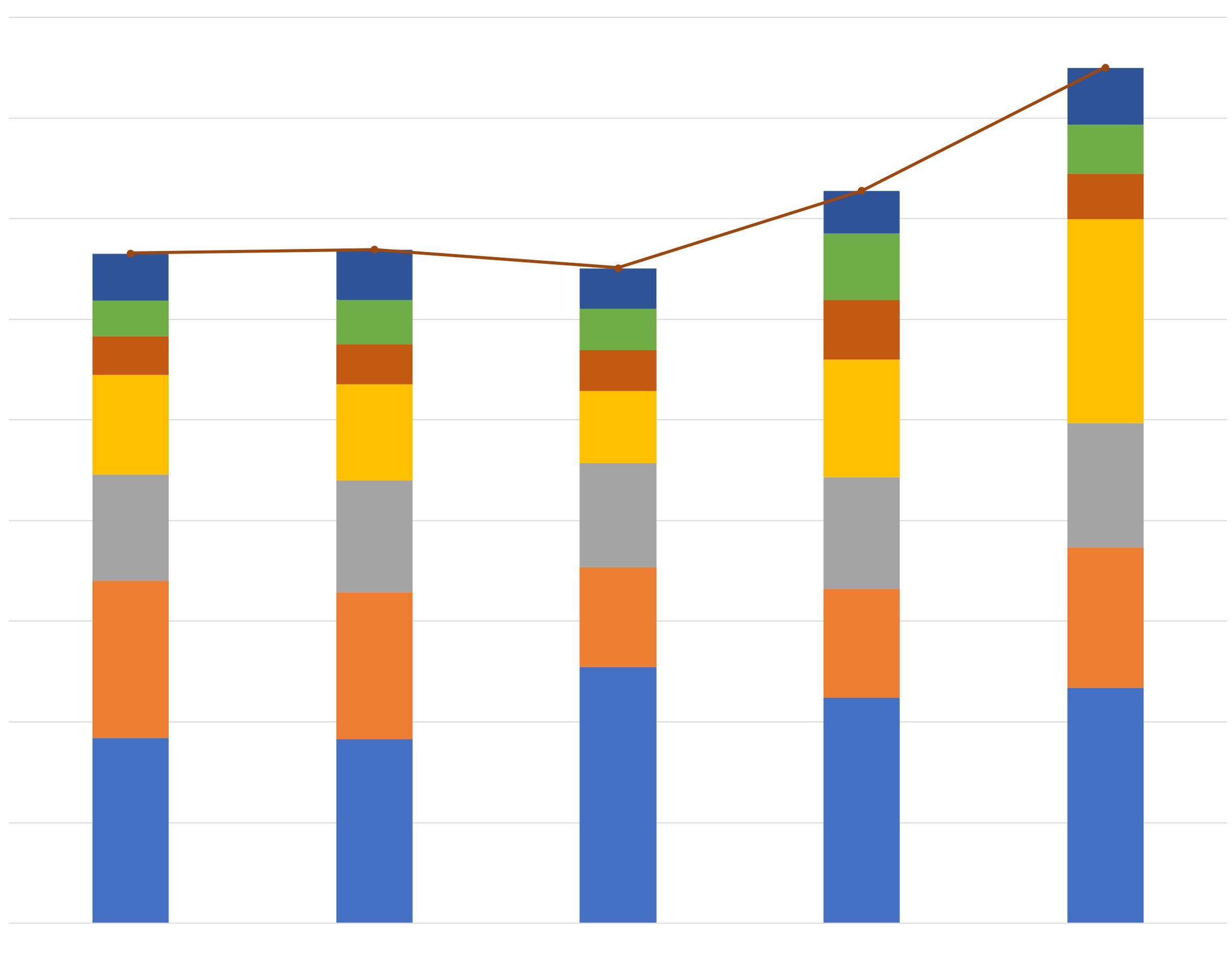
Non Federa l Depart ment of Education
National Science Foundation Depart ment of Health and Human Services
Depart ment of Commerce (N OA A)
Other Fe deral Sources
Depart ment of Defense
Grand Total
UMass Dartmouth 26 Metrics
FY2018 FY2019 FY2020 FY2021 FY2022 $16,000 $18,000 $14,000 $12,000 $8,000 $10,000 $4,000 $2,000 $0 $6,000 $13.3M $13.4M $14.6M $17.0M $13.0M
Top 10 Grant Award Recipients in FY 2022
OFFICE OF NAVAL RESEARCH
MASSACHUSETTS INSTITUTE OF TECHNOLOGY
MAYFLOWER WIND
ORSTED
VINEYARD WIND
NATIONAL SCIENCE FOUNDATION
NIH-NATIONAL INSTITUTES OF HEALTH
MASSACHUSETTS LIFE SCIENCES CENTER
NATIONAL SCIENCE FOUNDATION
AMT BIOPRODUCTS CORP.
APPLIED COASTAL RSRCH & ENGRG, INC
ECOLOGICAL ASSOCIATES, INC.
Grand Total
Grand Total
Grand Total
MA DEPT OF CONSERVATION AND RECREATION
MA DIVISION OF MARINE FISHERIES
MARTHA'S VINEYARD COMMISSION
MASHPEE WAMPANOAG TRIBE
SPRINGFIELD WATER AND SEWER COMMISSION
TOWN OF BARNSTABLE
TOWN OF BREWSTER
TOWN OF CHATHAM
TOWN OF DENNIS
TOWN OF FALMOUTH
TOWN OF HARWICH
TOWN OF MASHPEE
TOWN OF NANTUCKET
TOWN OF ORLEANS
TOWN OF PLYMOUTH
TOWN OF YARMOUTH
CLEARWATER SEAFOODS
MA DIVISION OF MARINE FISHERIES
MAYFLOWER WIND
Grand Total
NATIONAL OCEANIC AND ATMOSPHERIC ADMIN
Grand Total
MA DEPT OF ELEMENTARY & SECONDARY ED
MASSACHUSETTS TECHNOLOGY COLLABORATIVE
UNIVERSITY OF NEW HAMPSHIRE
WOODS HOLE OCEANOGRAPHIC INSTITUTION
Grand Total
NATIONAL OCEANIC AND ATMOSPHERIC ADMIN
NATIONAL SCIENCE FOUNDATION
NEW ENGLAND FISHERY MANAGEMENT COUNCIL
WOODS HOLE OCEANOGRAPHIC INSTITUTION
Grand Total
MA DIVISION OF MARINE FISHERIES
NATIONAL OCEANIC AND ATMOSPHERIC ADMIN
NE REG ASSOC OF COASTAL OCEAN OBSERV SYS
UNIVERSITY OF MAINE
WOODS HOLE OCEANOGRAPHIC INSTITUTION
Grand Total: $16,059,663
For a complete list of awards, please visit: umassd.edu/research
27 2022 Annual Research Report
Grand Total $4,328,191 $92,404 $505,446 $185,360 $1,558,830 $2,342,040 $128,000 $1,432,991 $1,560,991 $59,565 $1,498,020 $1,557,585 $16,000 $84,056 $60,739 $41,934 $2,000 $50,750 $8,400 $3,776 $216,891 $4,950 $98,613 $133,274 $169,100 $8,665 $260,947 $49,710 $136,693 $13,680 $8,400 $1,368,578 $289,425 $350,000 $248,574 $218,641 $1,106,640 $1,048,870 $739,936 $31,391 $190,984 $962,311 $286,302 $149,314 $74,959 $436,609 $947,184 $100,000 $341,854 $254,735 $60,000 $80,683 $837,272
Ramprasad Balasubramanian Pingguo He Hua Fang
Name Sponsor Amount
Tracie
L. Ferreira Brian L. Howes Kevin D.E. Stokesbury Lisa A. Jochim Steven E. Lohrenz Gavin Fay Changsheng Chen
Metrics
Annual Research Report 2022 metrics

FY2018 - FY2022 Proposals Submitted and Percentage Awarded

29 2022 Annual Research Report
Non Federa l Depart ment of Defense Other Fe deral Sources National Science Foundation Depart ment of Health and Human Serv ices Depart ment of Commerce (N OA A) National Aero and Space Administration % Awarded Gr and Total FY2018 FY2019 FY2020 FY2021 FY2022 60% 250 50% 200 40% 150 30% 100 20% 50 10% 0 0% 214 222 190 171 198 Metrics 45% 38% 39% 31% 51% Submitted
Funding Requested v. Awarded FY2018 - FY2022 (000’s)

UMass Dartmouth 30 Metrics FY2018 FY2019 FY2020 FY2021 FY2022 Requested $ Awarded $ % Awarded 45% $80.0 $40.0 $60.0 $20.0 $70.0 $30.0 $50.0 $10.0 $–40% 35% 30% 25% 20% 15% 10% 5% 0%
$62.5M $56.9M $70.8M $63.6M $64.7M 25% 20% 22% 33% 39%
New Awards FY2018 - FY2022 (000’s)
Active Awards 5-Year Trend FY2018 - FY2022 (000’s)


31 2022 Annual Research Report
$–Non Federa l Depart ment of Education National Science Foundation Depart ment of Health and Human Services Depart ment of Commerce (N OA A) Other Federal Sources Depart ment of Defense Grand Total FY2018 FY2019 FY2020 FY2021 FY2022 $25,000 $30,000 $20,000 $15,000 $10,000 $5,000 FY2018 FY2019 FY2020 FY2021 FY2022 280 255 294 264 268 # Awards # Dollars (000’s) 300 290 260 280 270 250 240 230 80.0 90.0 70.0 60.0 50.0 40.0 30.0 20.0 10.0
$16.0M $20.5M $27.1M $19.4M $12.1M $54.7M $61.5M $60.1M $59.1M $82.1M Metrics
Sponsored Research Expenditures FY2018 - FY2022 (000’s)

Non Federa l Depart ment of Education
National Science Foundation Depart ment of Health and Human Services
Depart ment of Commerce (N OA A)
Other Fe deral Sources
Depart ment of Defense
Grand Total
UMass Dartmouth 32 Metrics
FY2018 FY2019 FY2020 FY2021 FY2022 $16,000 $18,000 $14,000 $12,000 $8,000 $10,000 $4,000 $2,000 $0 $6,000 $13.3M $13.4M $14.6M $17.0M $13.0M
Top 10 Grant Award Recipients in FY 2022
OFFICE OF NAVAL RESEARCH
MASSACHUSETTS INSTITUTE OF TECHNOLOGY
MAYFLOWER WIND
ORSTED
VINEYARD WIND
NATIONAL SCIENCE FOUNDATION
NIH-NATIONAL INSTITUTES OF HEALTH
MASSACHUSETTS LIFE SCIENCES CENTER
NATIONAL SCIENCE FOUNDATION
AMT BIOPRODUCTS CORP.
APPLIED COASTAL RSRCH & ENGRG, INC
ECOLOGICAL ASSOCIATES, INC.
Grand Total
Grand Total
Grand Total
MA DEPT OF CONSERVATION AND RECREATION
MA DIVISION OF MARINE FISHERIES
MARTHA'S VINEYARD COMMISSION
MASHPEE WAMPANOAG TRIBE
SPRINGFIELD WATER AND SEWER COMMISSION
TOWN OF BARNSTABLE
TOWN OF BREWSTER
TOWN OF CHATHAM
TOWN OF DENNIS
TOWN OF FALMOUTH
TOWN OF HARWICH
TOWN OF MASHPEE
TOWN OF NANTUCKET
TOWN OF ORLEANS
TOWN OF PLYMOUTH
TOWN OF YARMOUTH
CLEARWATER SEAFOODS
MA DIVISION OF MARINE FISHERIES
MAYFLOWER WIND
Grand Total
NATIONAL OCEANIC AND ATMOSPHERIC ADMIN
Grand Total
MA DEPT OF ELEMENTARY & SECONDARY ED
MASSACHUSETTS TECHNOLOGY COLLABORATIVE
UNIVERSITY OF NEW HAMPSHIRE
WOODS HOLE OCEANOGRAPHIC INSTITUTION
Grand Total
NATIONAL OCEANIC AND ATMOSPHERIC ADMIN
NATIONAL SCIENCE FOUNDATION
NEW ENGLAND FISHERY MANAGEMENT COUNCIL
WOODS HOLE OCEANOGRAPHIC INSTITUTION
Grand Total
MA DIVISION OF MARINE FISHERIES
NATIONAL OCEANIC AND ATMOSPHERIC ADMIN
NE REG ASSOC OF COASTAL OCEAN OBSERV SYS
UNIVERSITY OF MAINE
WOODS HOLE OCEANOGRAPHIC INSTITUTION
Grand Total: $16,059,663
For a complete list of awards, please visit: umassd.edu/research
33 2022 Annual Research Report
Grand Total $4,328,191 $92,404 $505,446 $185,360 $1,558,830 $2,342,040 $128,000 $1,432,991 $1,560,991 $59,565 $1,498,020 $1,557,585 $16,000 $84,056 $60,739 $41,934 $2,000 $50,750 $8,400 $3,776 $216,891 $4,950 $98,613 $133,274 $169,100 $8,665 $260,947 $49,710 $136,693 $13,680 $8,400 $1,368,578 $289,425 $350,000 $248,574 $218,641 $1,106,640 $1,048,870 $739,936 $31,391 $190,984 $962,311 $286,302 $149,314 $74,959 $436,609 $947,184 $100,000 $341,854 $254,735 $60,000 $80,683 $837,272
Ramprasad Balasubramanian Pingguo He Hua Fang
Name Sponsor Amount
Tracie
L. Ferreira Brian L. Howes Kevin D.E. Stokesbury Lisa A. Jochim Steven E. Lohrenz Gavin Fay Changsheng Chen
Metrics
Number of Awards FYs 2018-2022
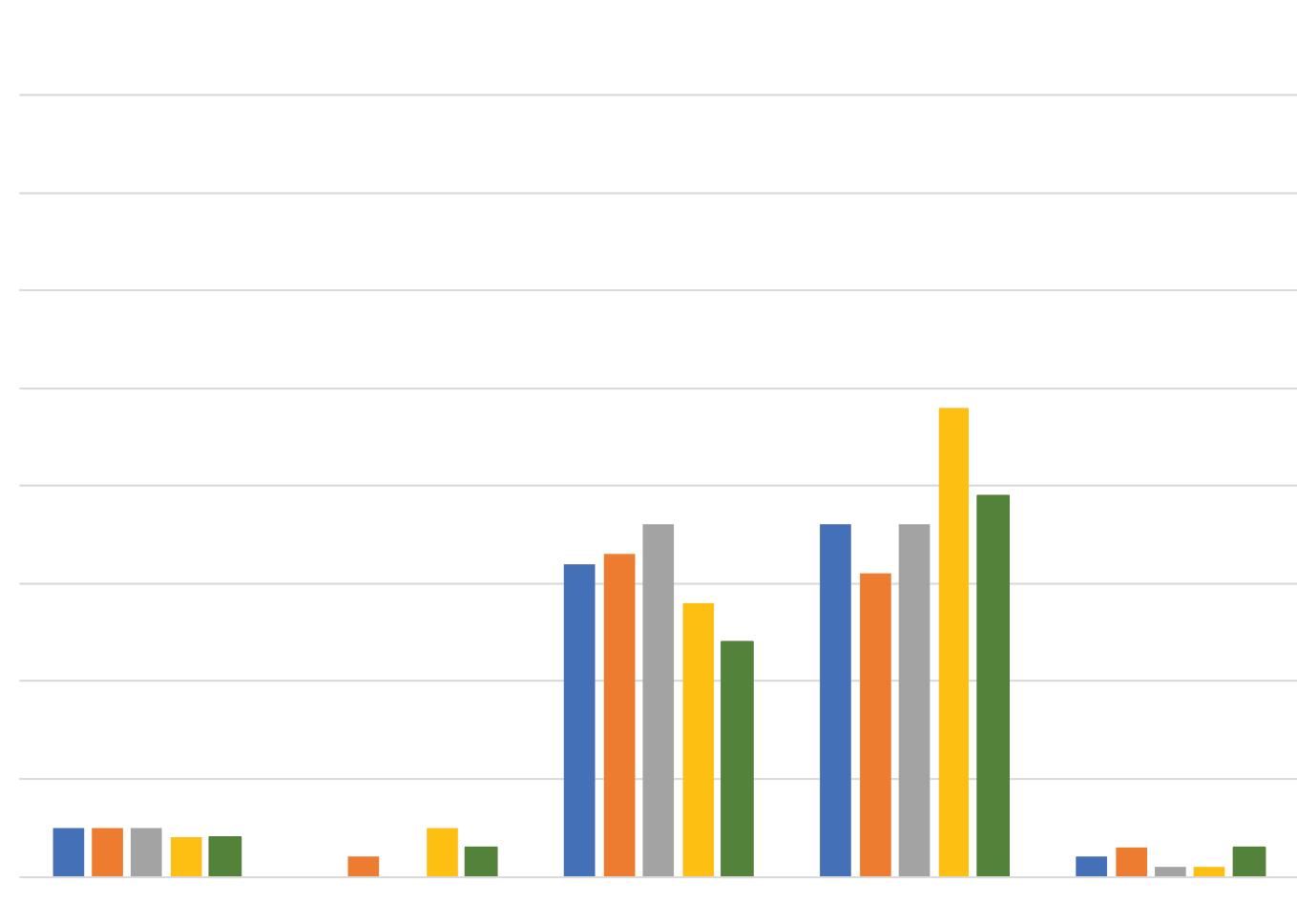
UMass Dartmouth 34
Metrics Academic Affairs Others College of Arts & Sciences College of Engineering College of Nursing & Health Sciences 0 10 20 30 40 50 60 70 80 FY 2018 FY 2019 FY 2020 FY 2021 FY 2022

35 2022 Annual Research Report Year Award Count 2018 143 2019 145 2020 132 Year Award Count 2021 152 2022 150 Metrics
Technology
School for Marine Science &
UMass School of Law at Dartmouth
Office of the Chancellor MUST Award
Award Amounts FYs 2018–2022
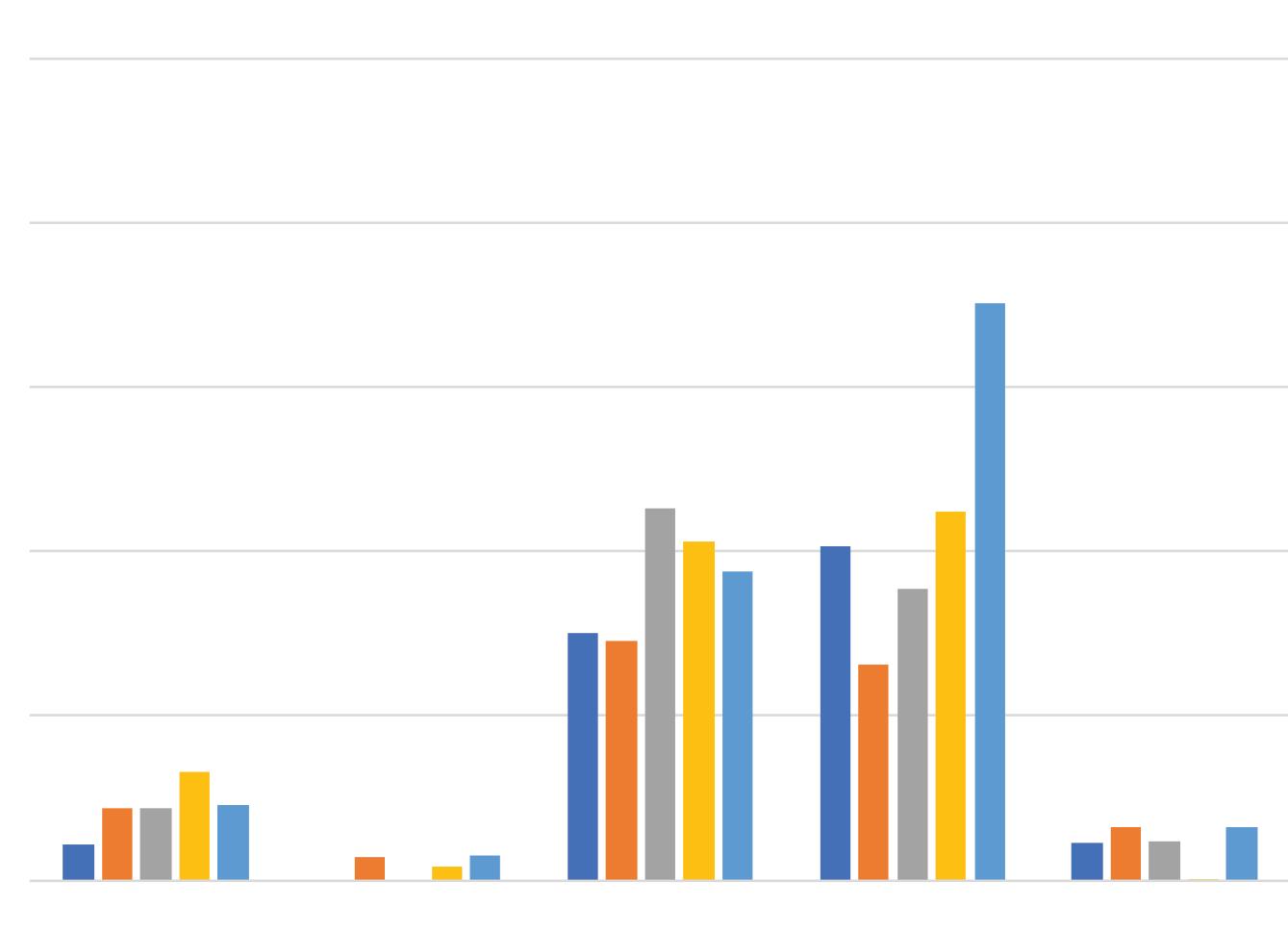
UMass Dartmouth 36 Metrics Academic Affairs Others College of Arts & Sciences College of Engineering College of Nursing & Health Sciences 0 10 20 30 40 50 60 70 80 FY 2018 FY 2019 FY 2020 FY 2021 FY 2022
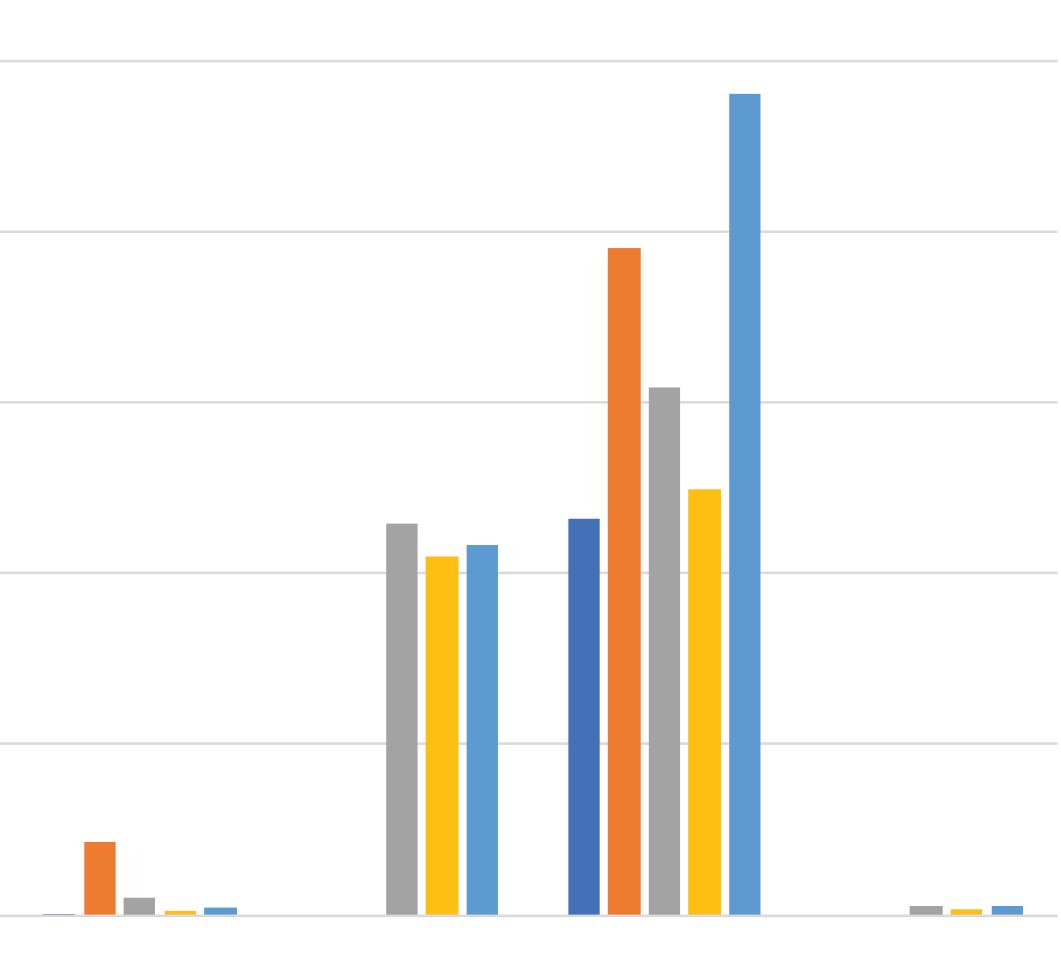
37 2022 Annual Research Report Metrics
School for Marine Science & Technology
Office
MUST Award Sum Amount Year Total 2018 $12,642,110 2019 $16,018,843 2020 $20,484,076 Sum Amount Year Total 2021
2022
Grand Total
UMass School of Law at Dartmouth
of the Chancellor
$19,426,344
$26,781,497
$95,352,871
Federal Awards by Agency FY 2022

UMass Dartmouth 38
Agency Name Amount % National Science Foundation $6,436,759 35% Department of Defense $6,237,643 34% Department of Commerce (NOAA) $2,459,918 14% Department of Health & Human Services $1,717,871 9% Department of Education $917,012 5% Other $499,116 3% Grand Total $18,268,319 100% Department of Health & Human Services 9% National Science Foundation 35% Department of Commerce (NOAA) 14% Other 3% Department of Education 5% Department of Defense 34% Metrics
Awards by Purpose (000's)
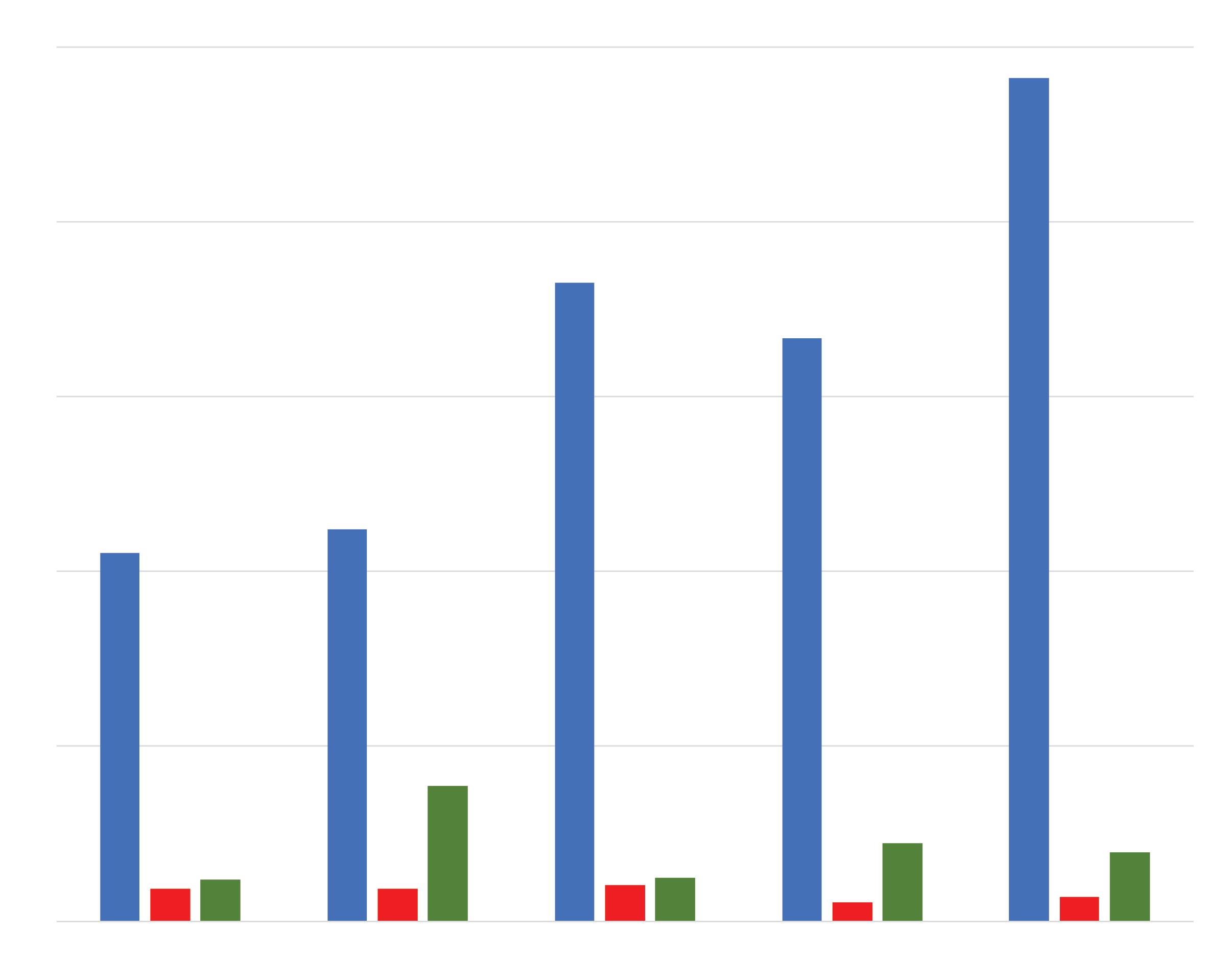
39 2022 Annual Research Report
2018 Research $10,521,761 Instruction/Training $932,375 Other Sponsored Activities $1,187,974 2019 Research $11,216,620 Instruction/Training $923,175 Other Sponsored Activities $3,872,911 2020 Research $18,243,616 Instruction/Training $1,022,102 Other Sponsored Activities $1,224,496 2021 Research $16,677,603 Instruction/Training $524,439 Other Sponsored Activities $2,224,302 2022 Research $24,107,051 Instruction/Training $702,729 Other Sponsored Activities $1,971,717 FY2018 FY2019 FY2020 FY2021 FY2022 $15,000 $20,000 $25,000 $10,000 $5,000 Research Instruction/Training
Sponsored Activities Metrics
Other
Awards by Unit & Department FY 2022
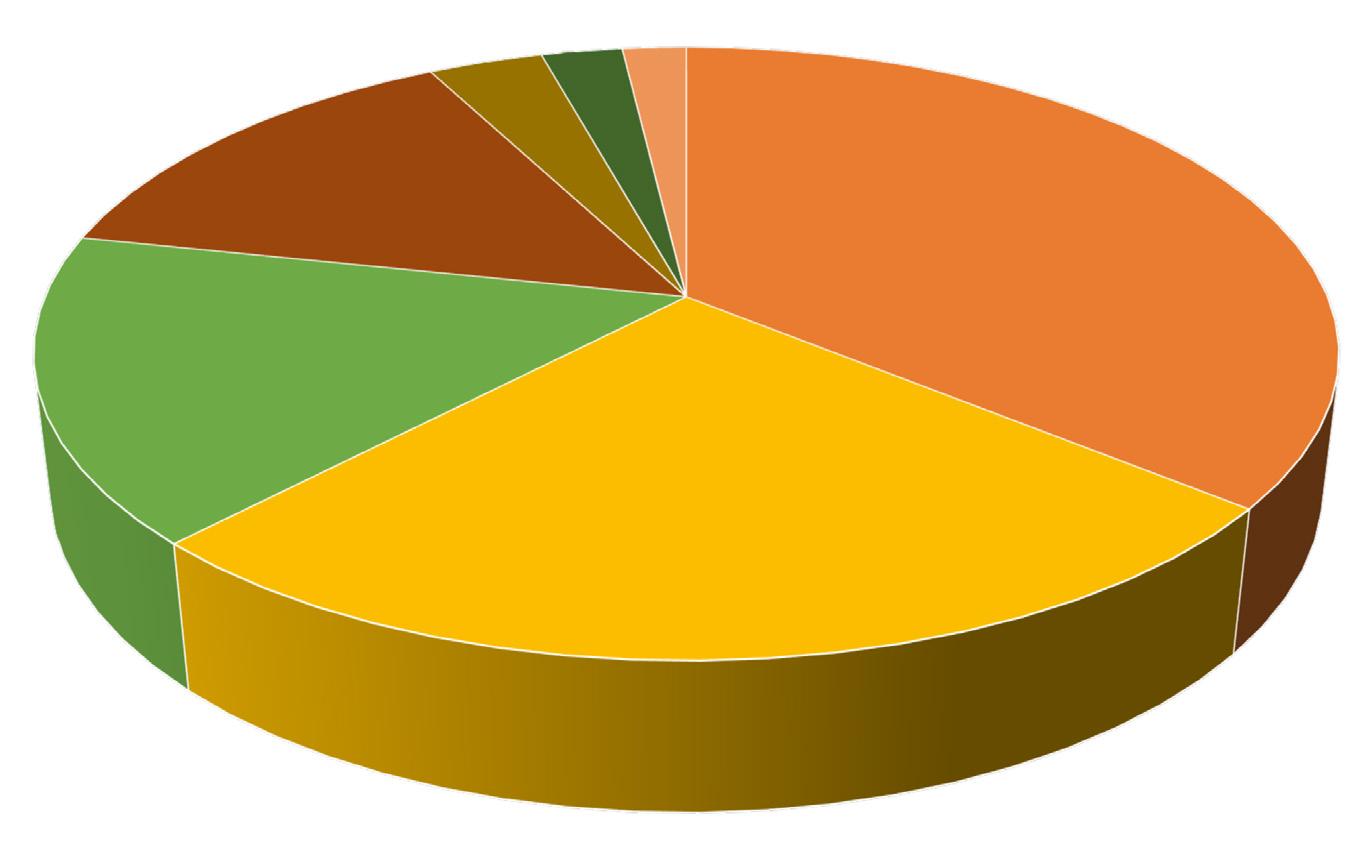
UMass Dartmouth 40
College of Engineering 26% College of Arts & Sciences 14% MUST Award 16% Academic Affairs 3% College of Nusing & Health Sciences 2% Other 2% School for Marine Science & Technology 36% Unit Name Amount Awards School for Marine Science & Technology $9,616,943 73 College of Engineering $7,028,160 39 MUST Award $4,328,191 1 College of Arts and Sciences $3,749,336 24 Academic Affairs $909,487 4 College of Nursing & Health Sciences $642,735 3 Other $506,646 6 Grand Total $26,781,497 150 Metrics
Proposals by College FY 2022

41 2022 Annual Research Report
College of Engineering 52% College of Arts & Sciences 19% Office of the Provost 7% College of Nusing & Health Sciences 2% Other 1% School for Marine Science & Technology 19% Unit Name Award Amount College of Engineering 79 $34,385,202 School for Marine Science & Technology 46 $12,432,809 College of Arts & Sciences 32 $12,185,236 Office of the Provost 1 $4,328,191 College of Nursing & Health Sciences 8 $1,642,030 Other 5 $513,129 Grand Total 171 $65,486,597 Metrics % 52% 19% 19% 7% 2% 1% 100%
Expenditures by College, Department & PI FY 2022
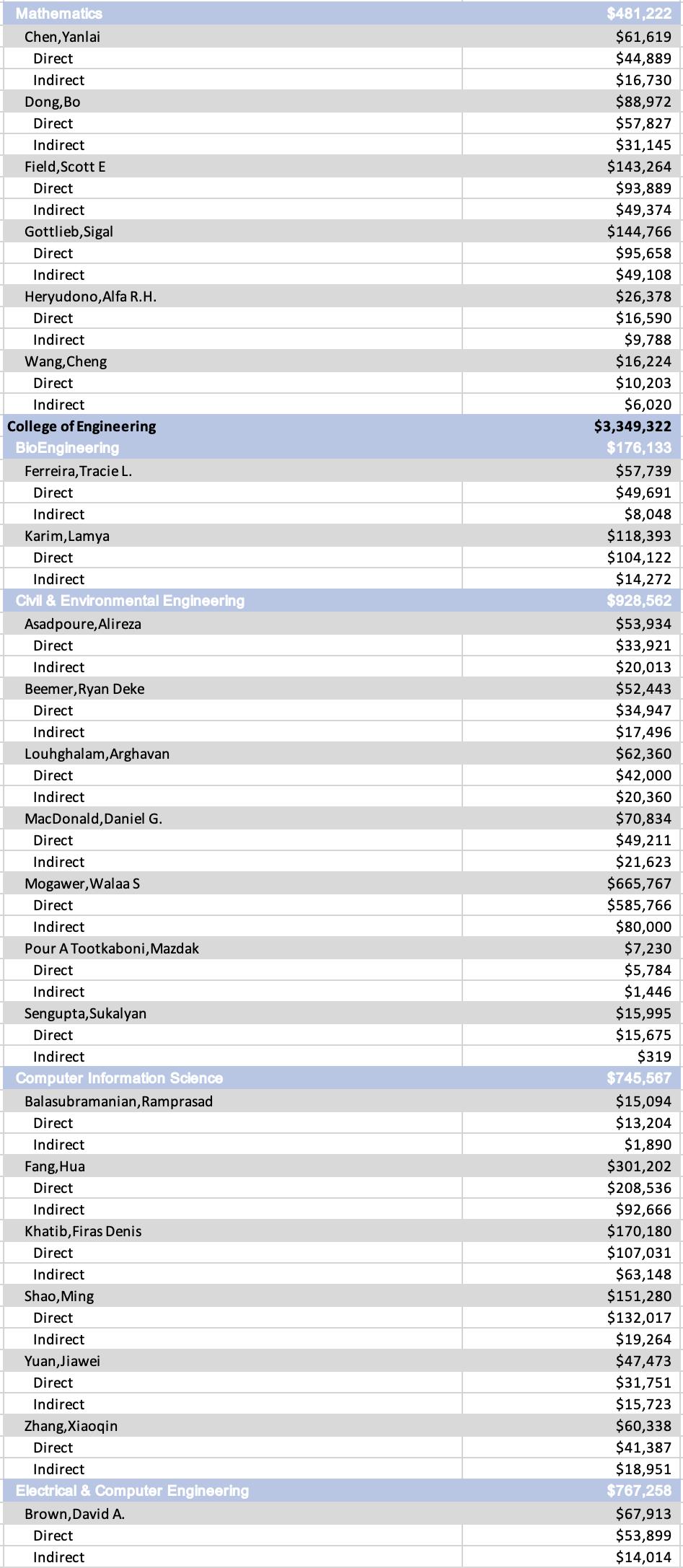
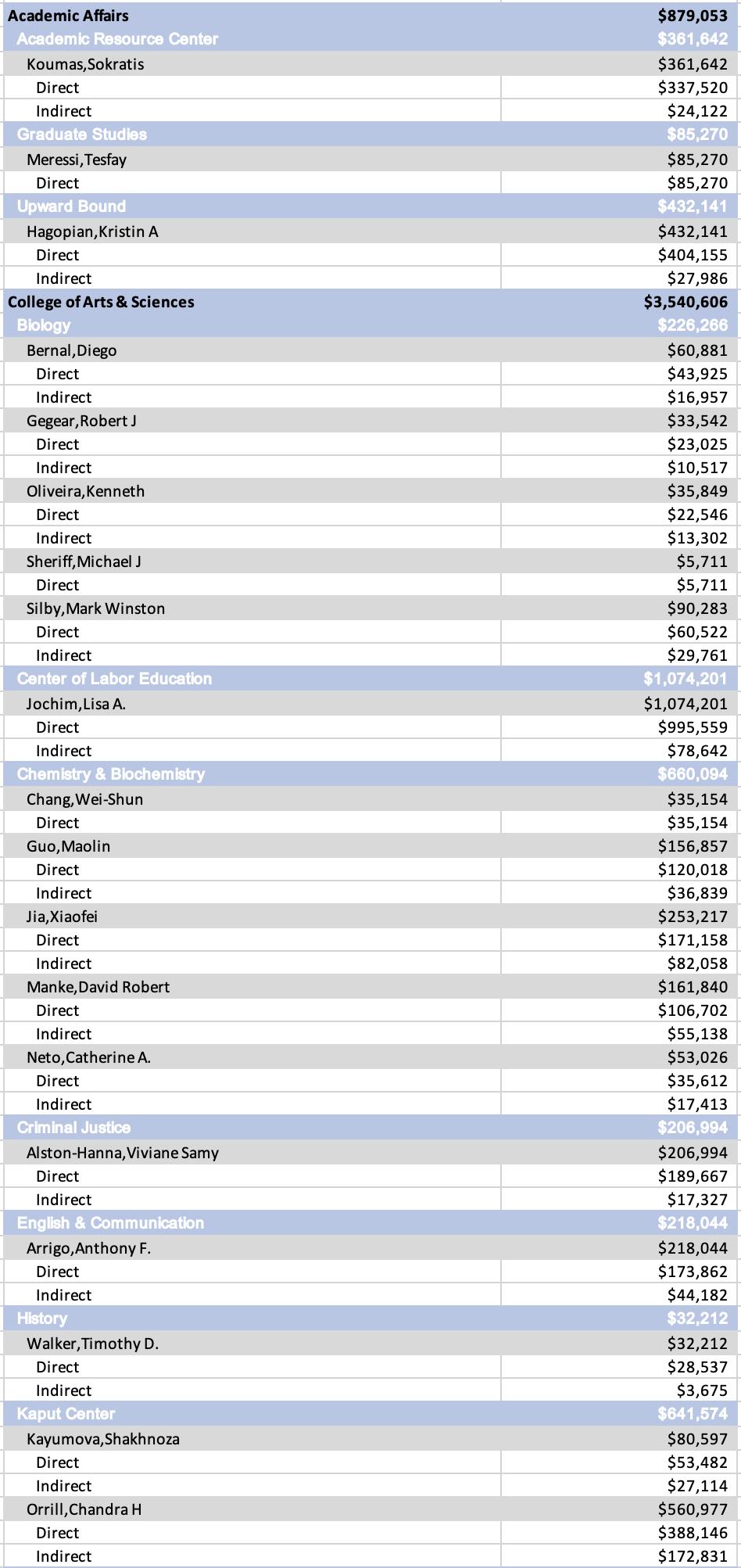
UMass Dartmouth 42 Metrics
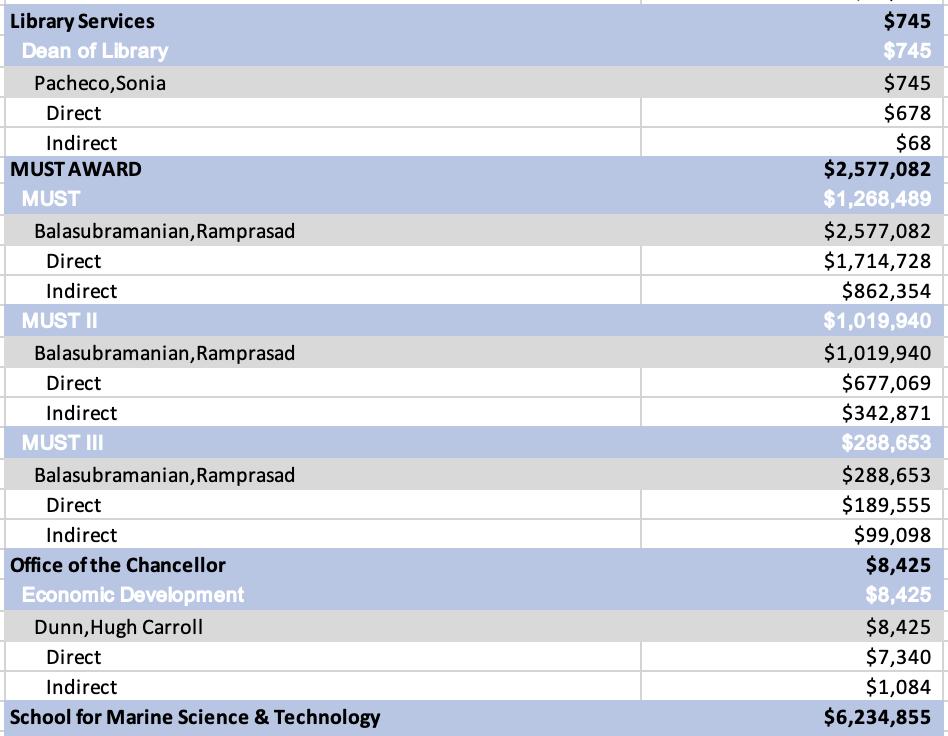
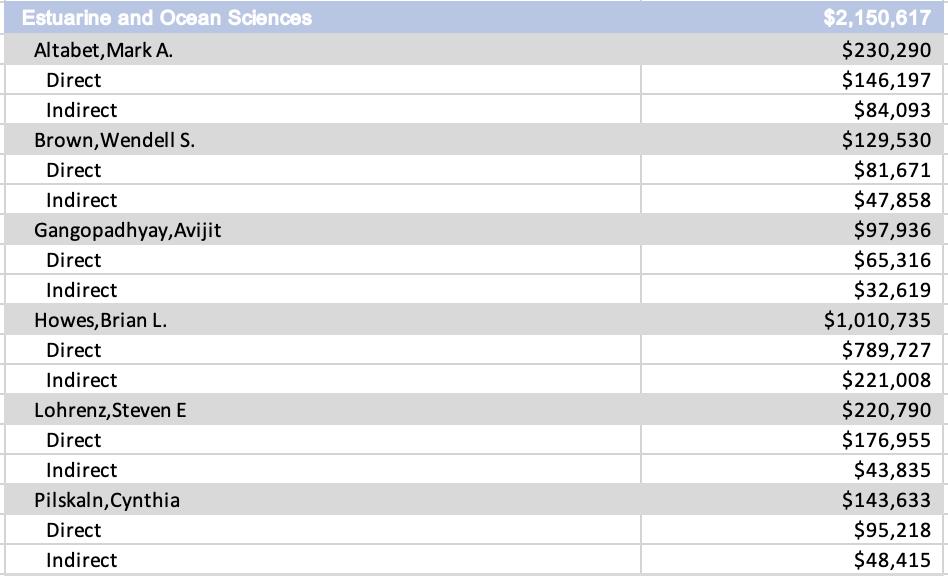


43 2022 Annual Research Report Metrics
Expenditures by College, Department & PI FY 2022 (continued)

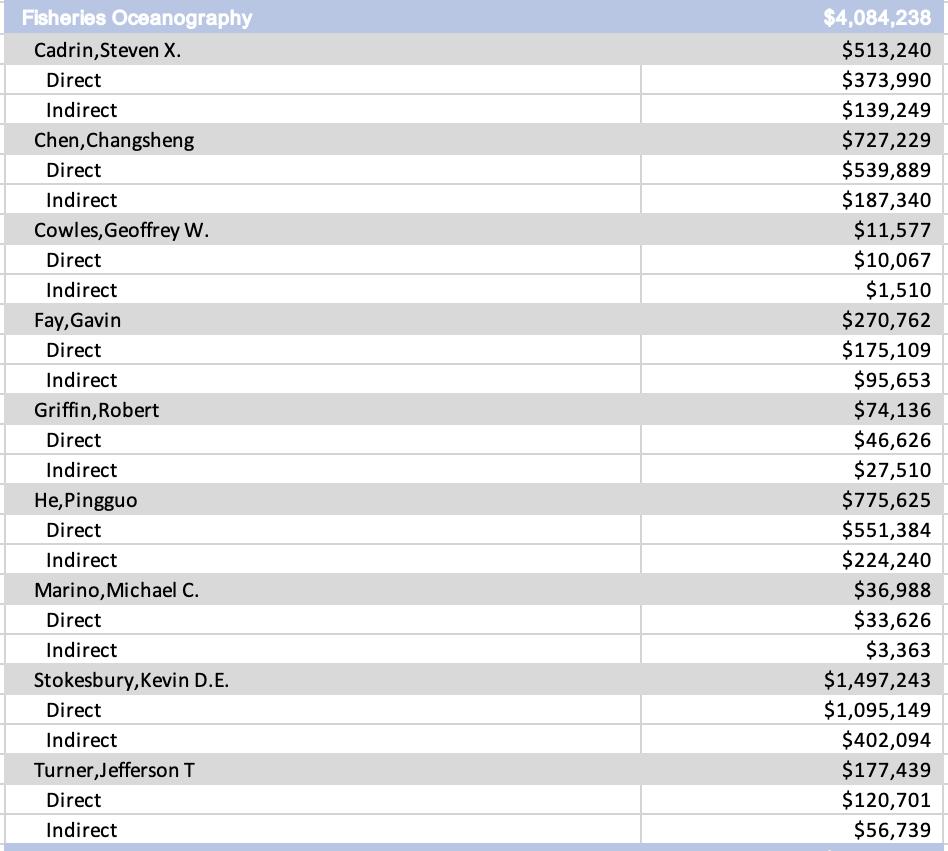
UMass Dartmouth 44 Metrics
Awards by College FY 2022
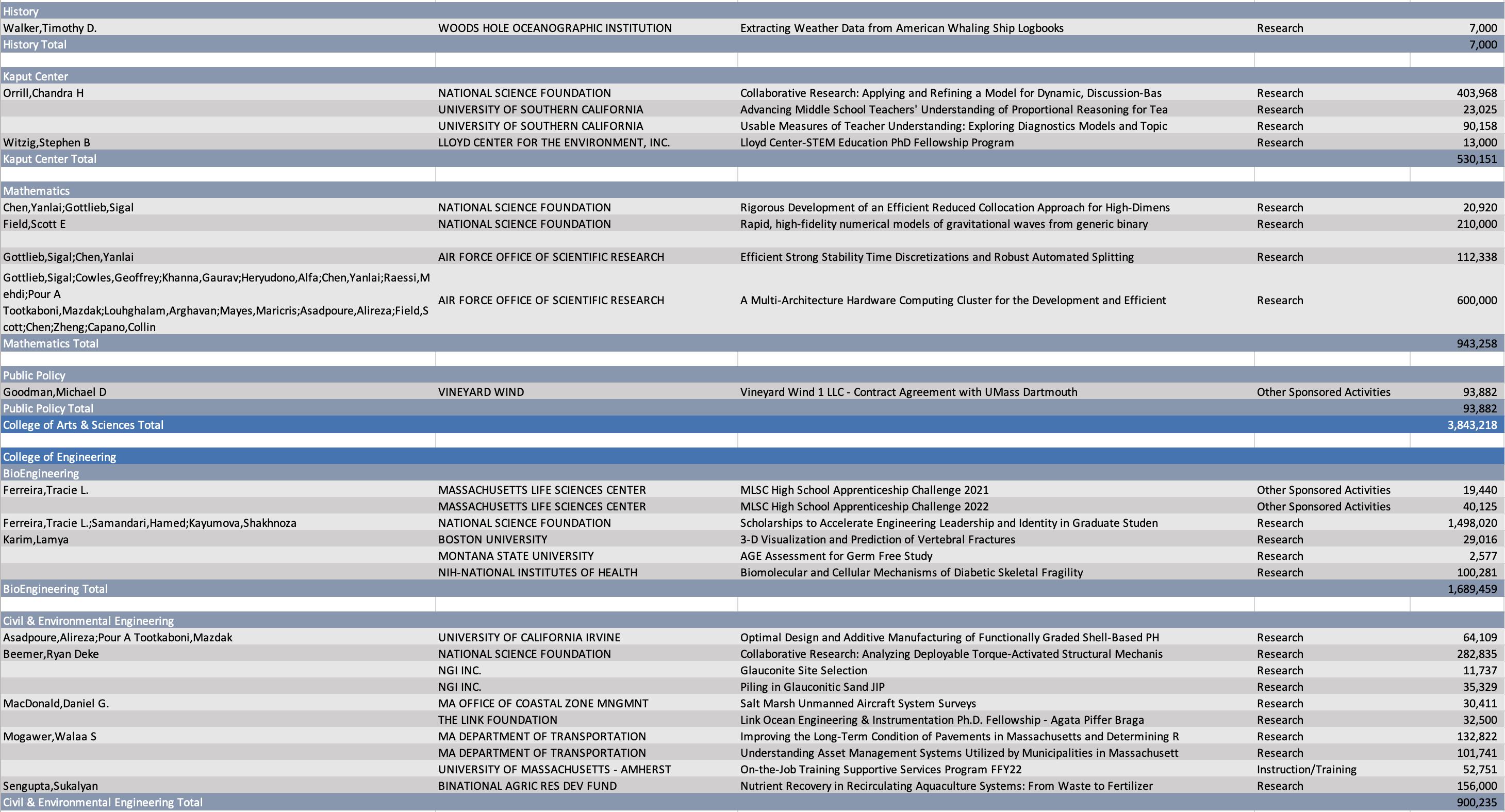
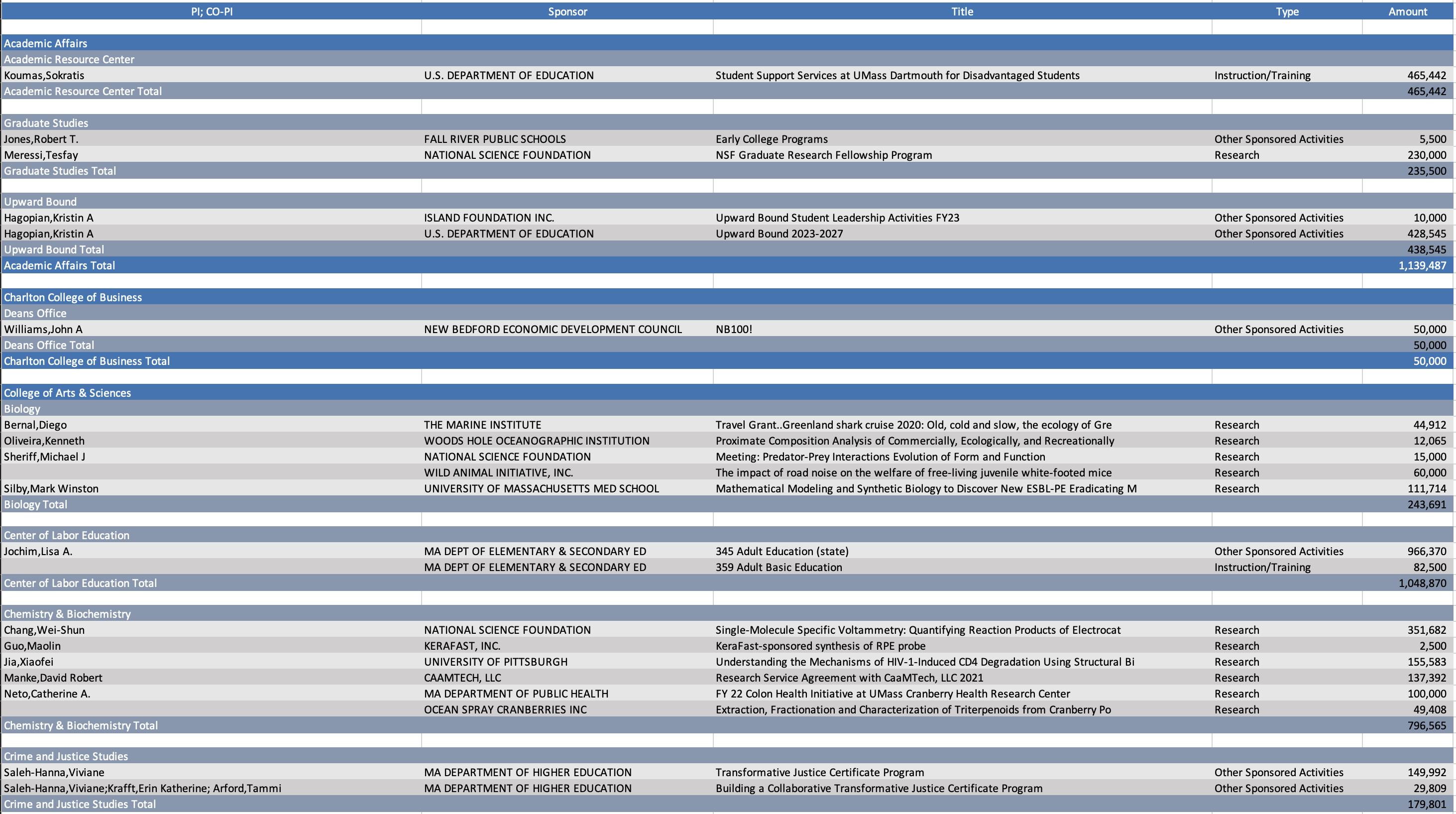
45 2022 Annual Research Report Metrics
Awards by College FY 2022


UMass Dartmouth 46 Metrics
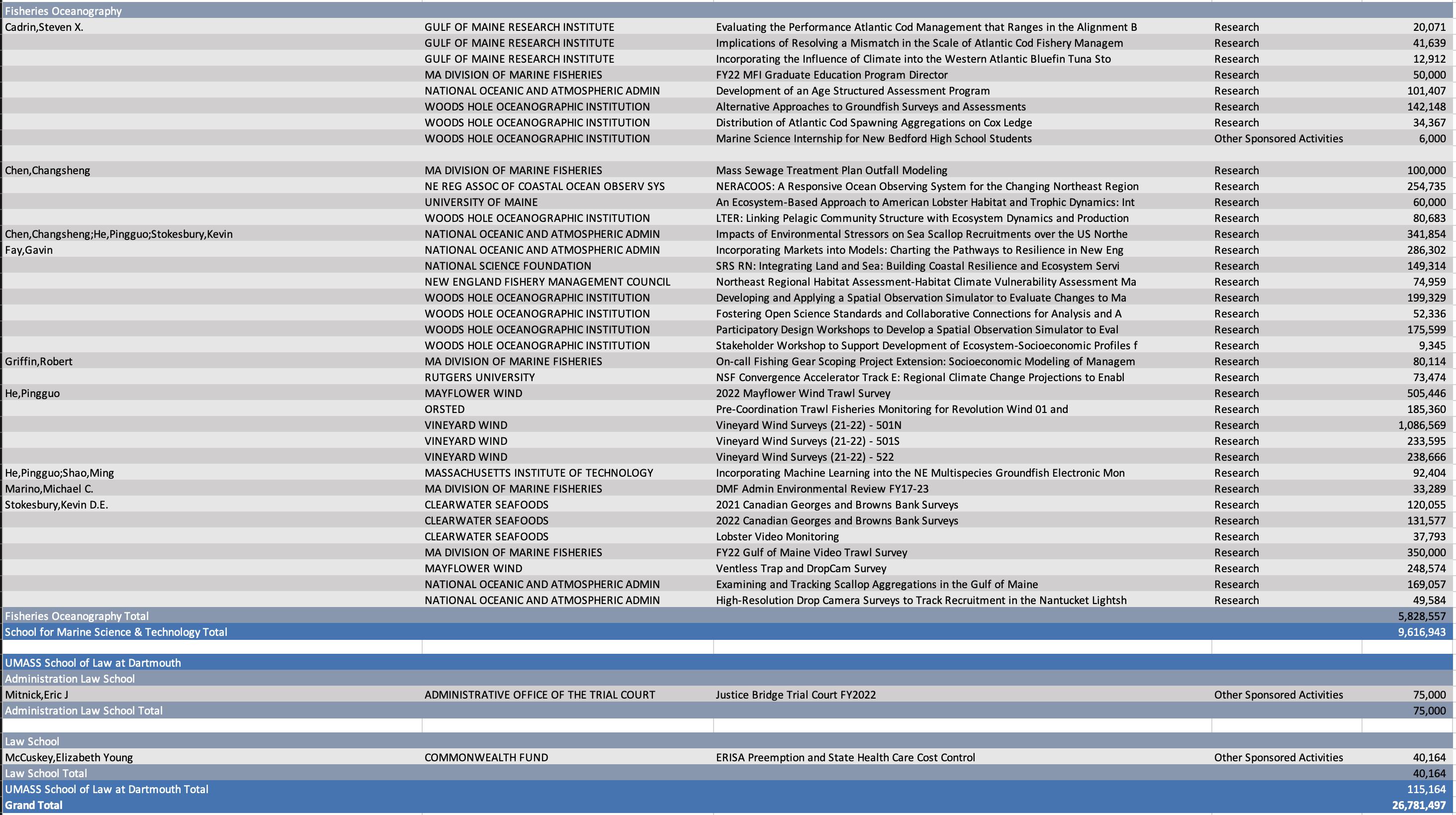
47 2022 Annual Research Report Metrics
285 Old Westport Road Dartmouth, MA 02747-2300 202211465-UMassD-ResearchReport-Metrics-Final




















 NASA awards Professor Robert Fisher $550,000 research grant through Astrophysics Theory Program
NASA awards Professor Robert Fisher $550,000 research grant through Astrophysics Theory Program







 of
John Williams, Dean of the Charlton College of Business, lands $50,000 for entrepreneurship support program
Dean John Williams
of
John Williams, Dean of the Charlton College of Business, lands $50,000 for entrepreneurship support program
Dean John Williams




































































